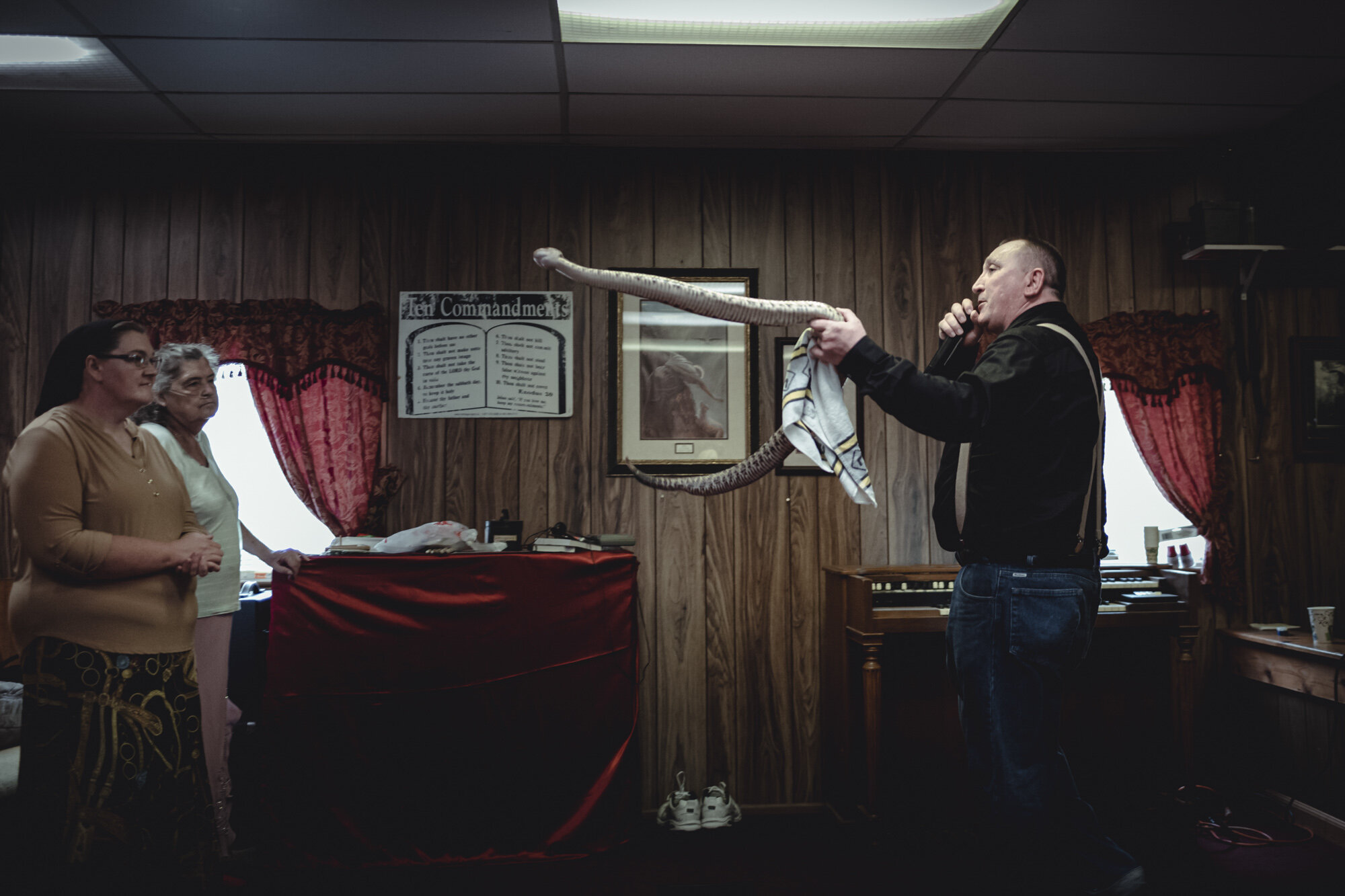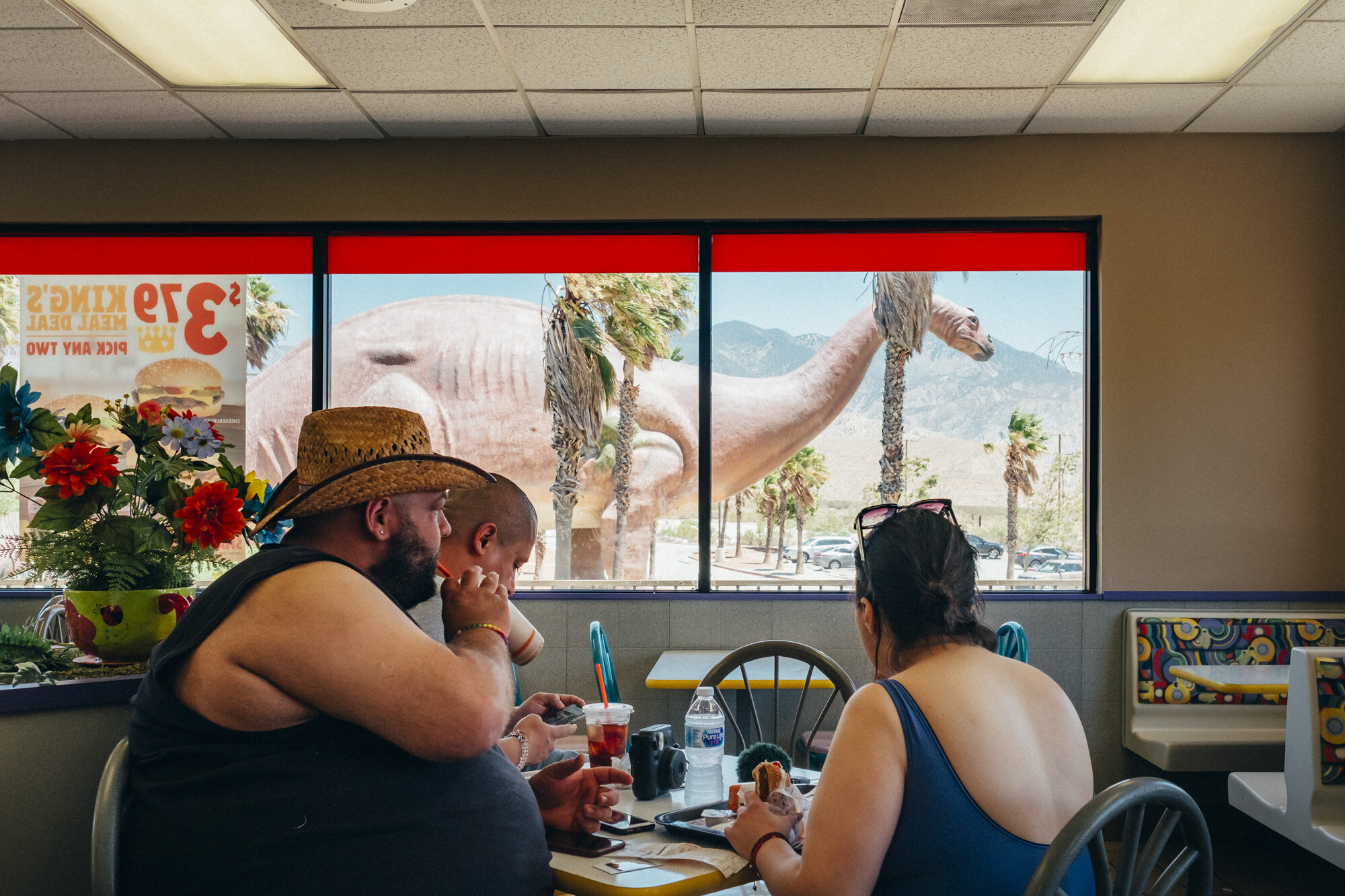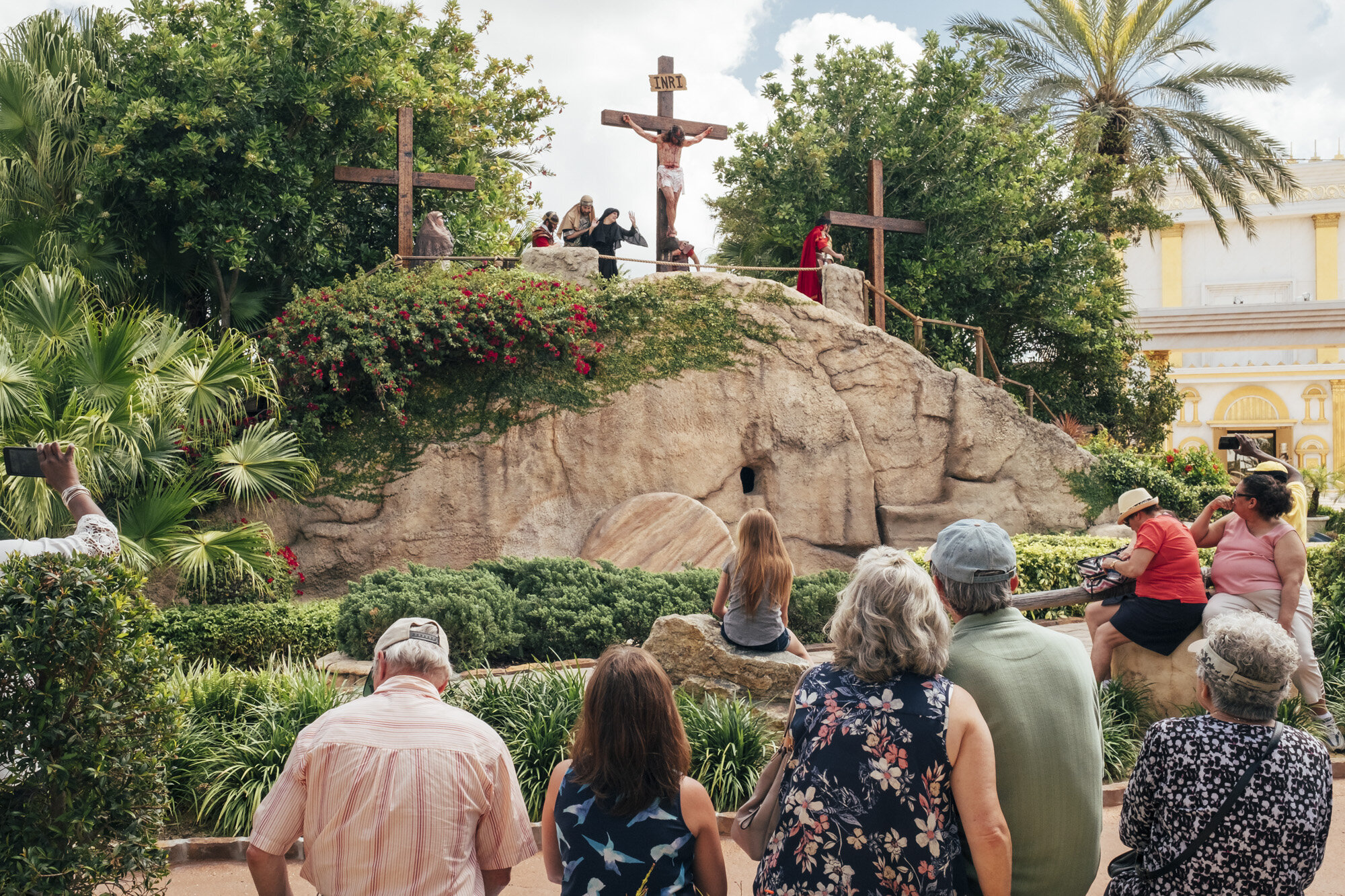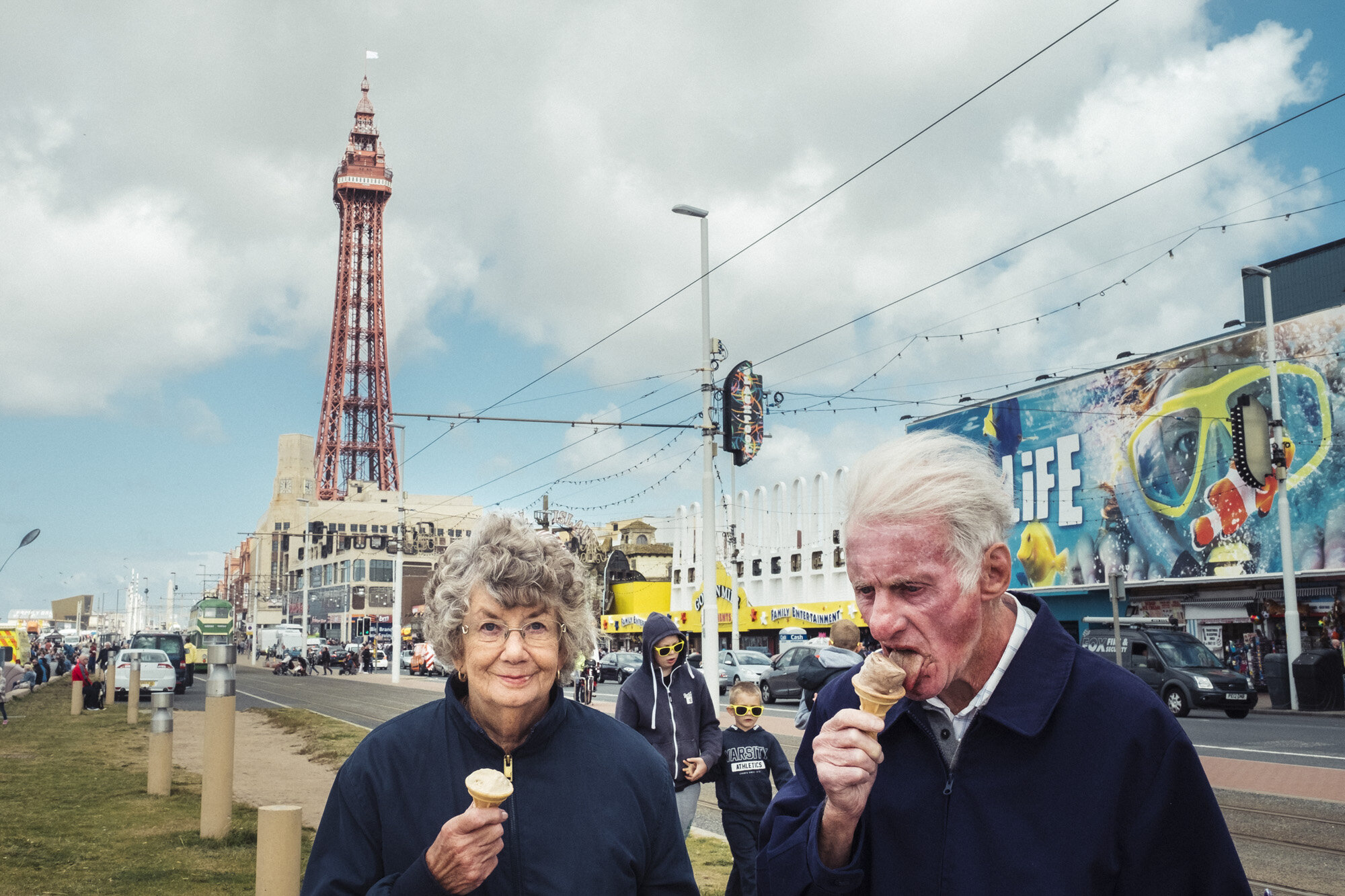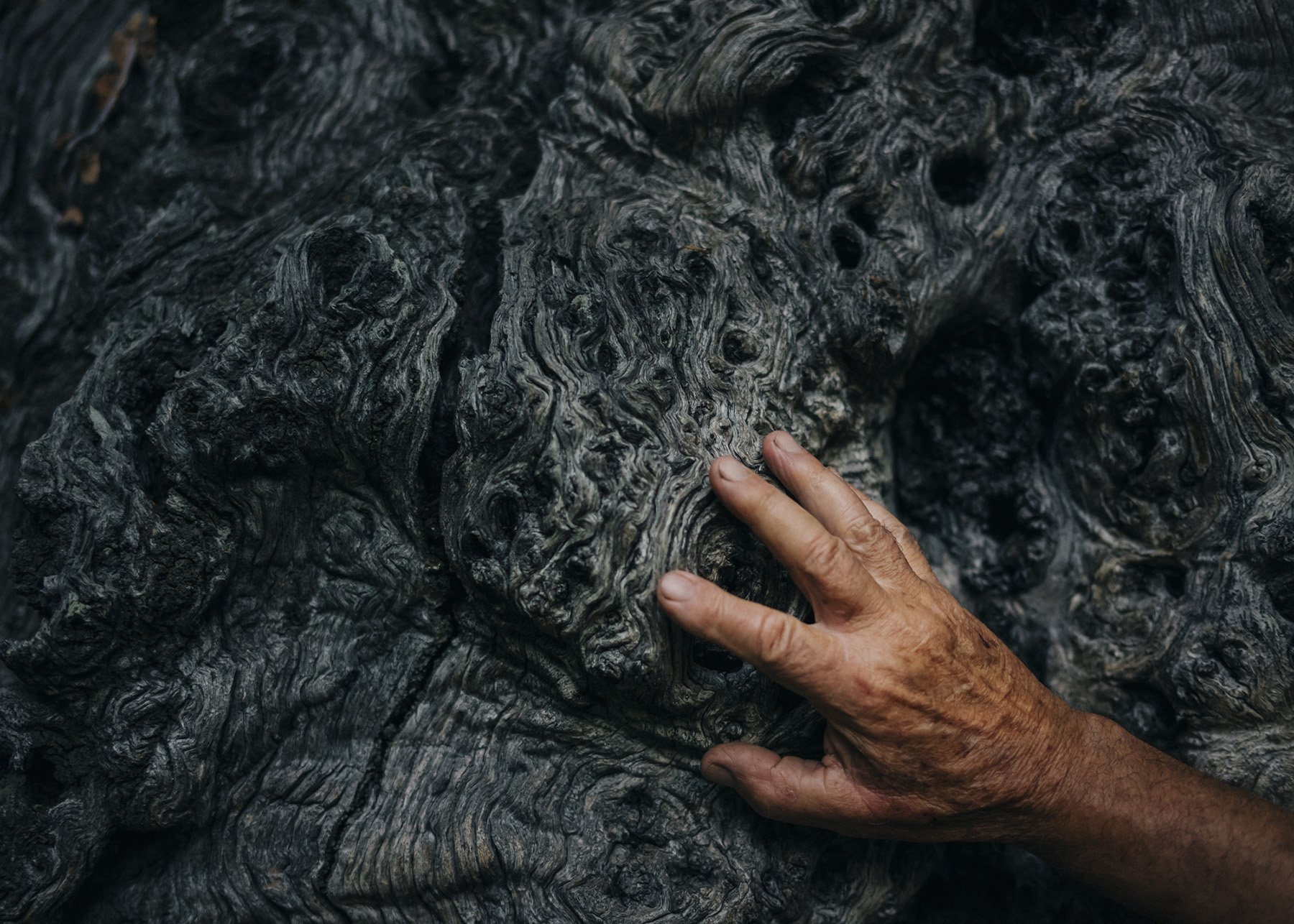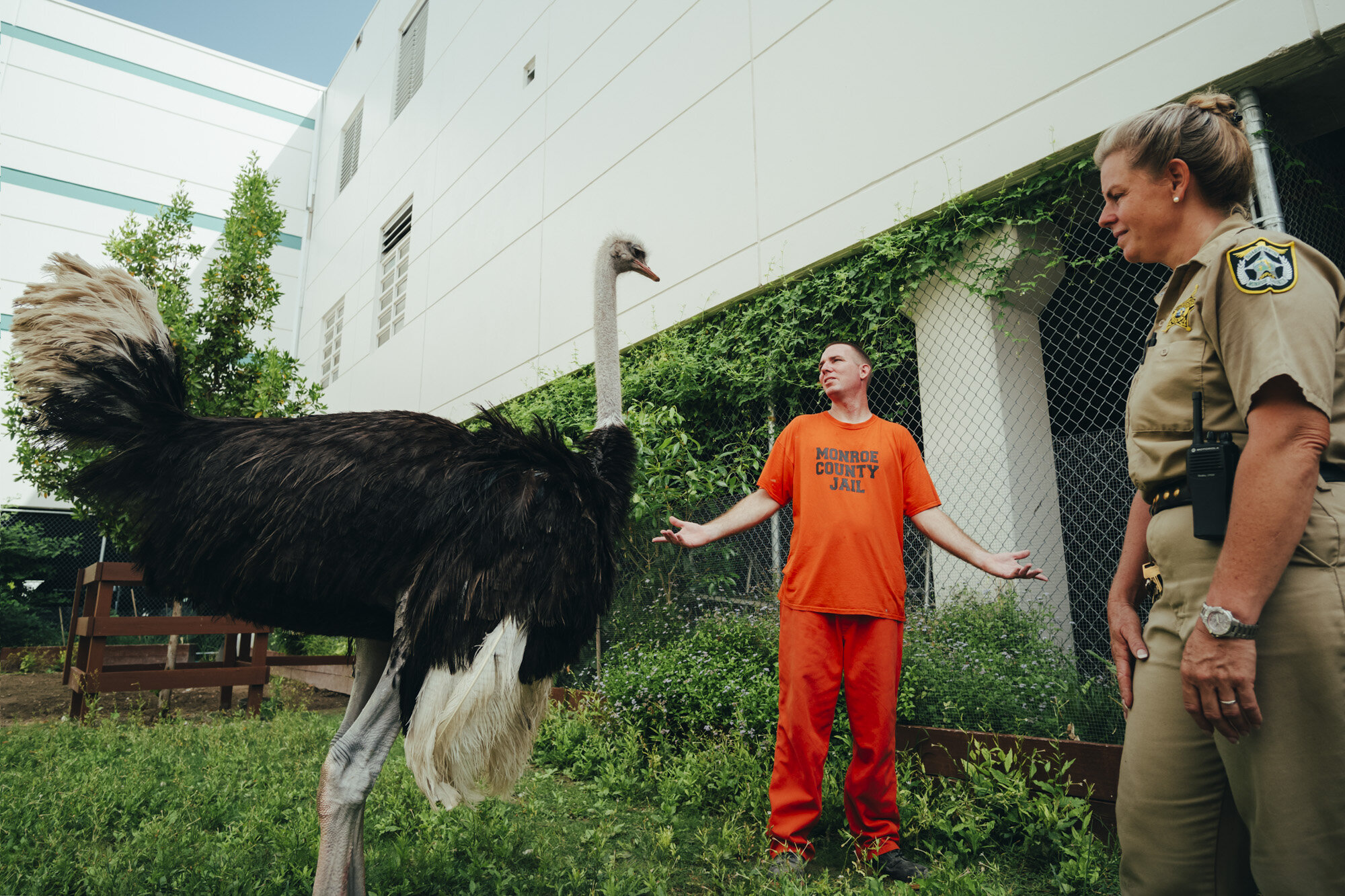
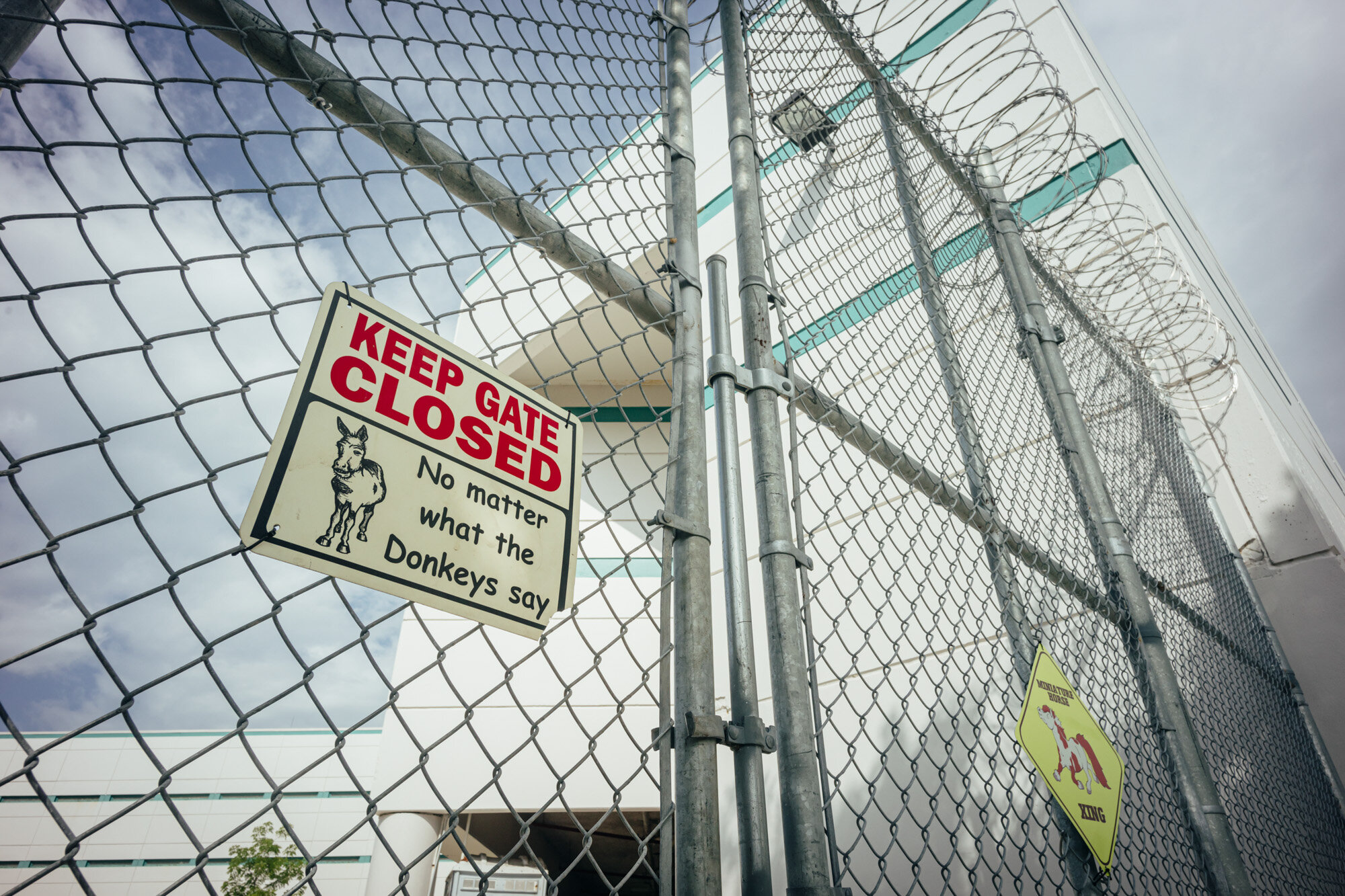
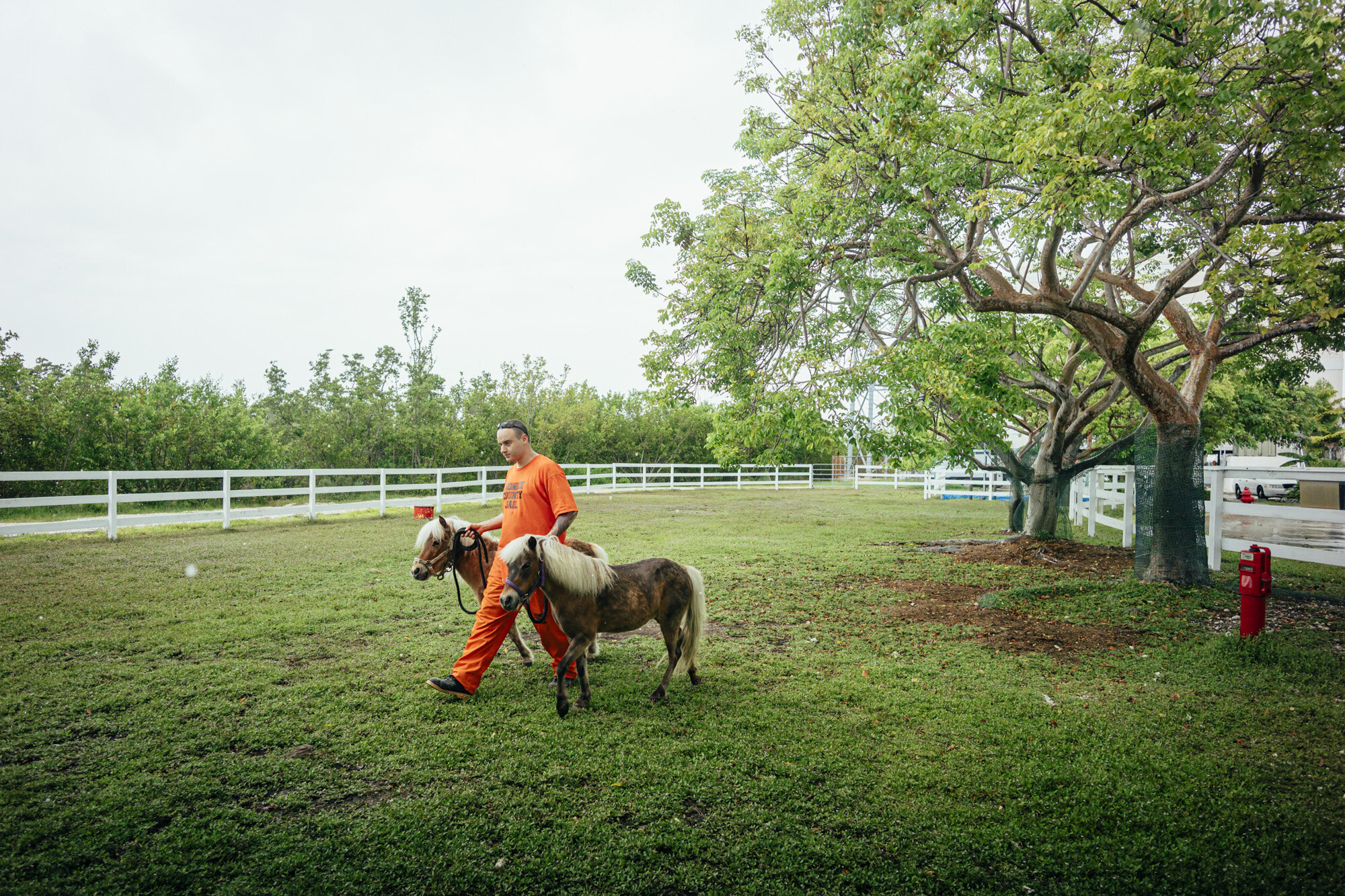
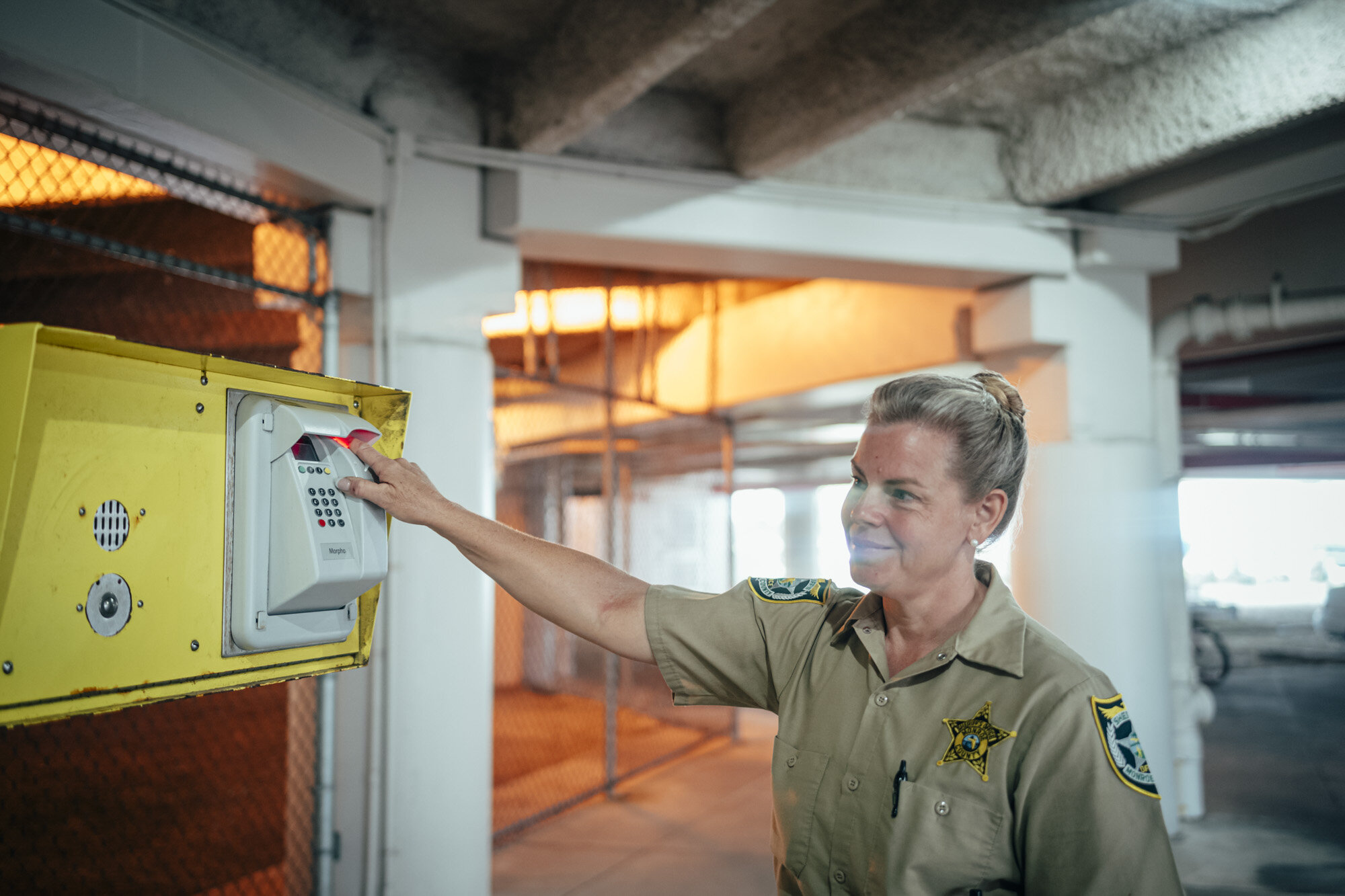
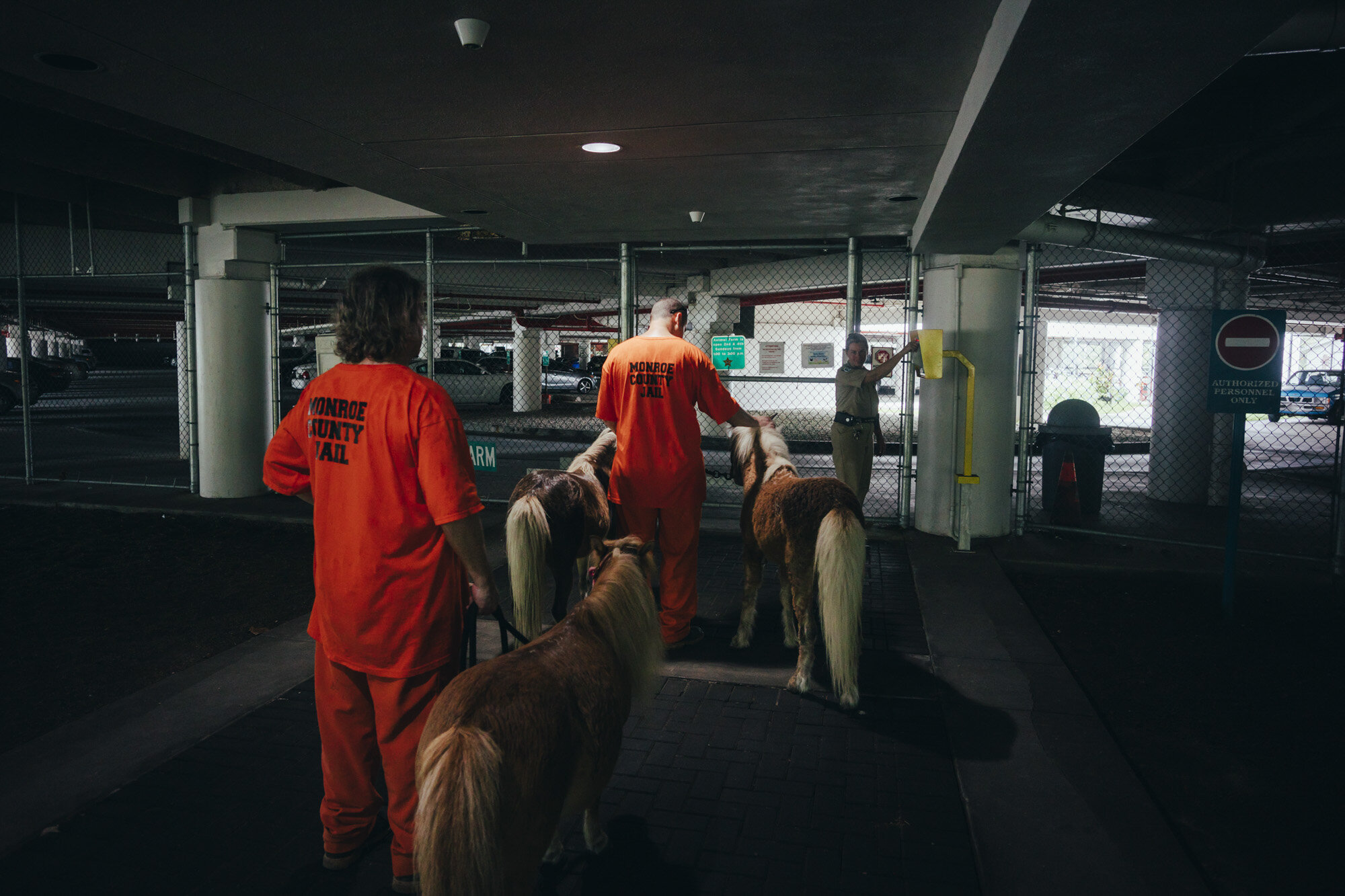
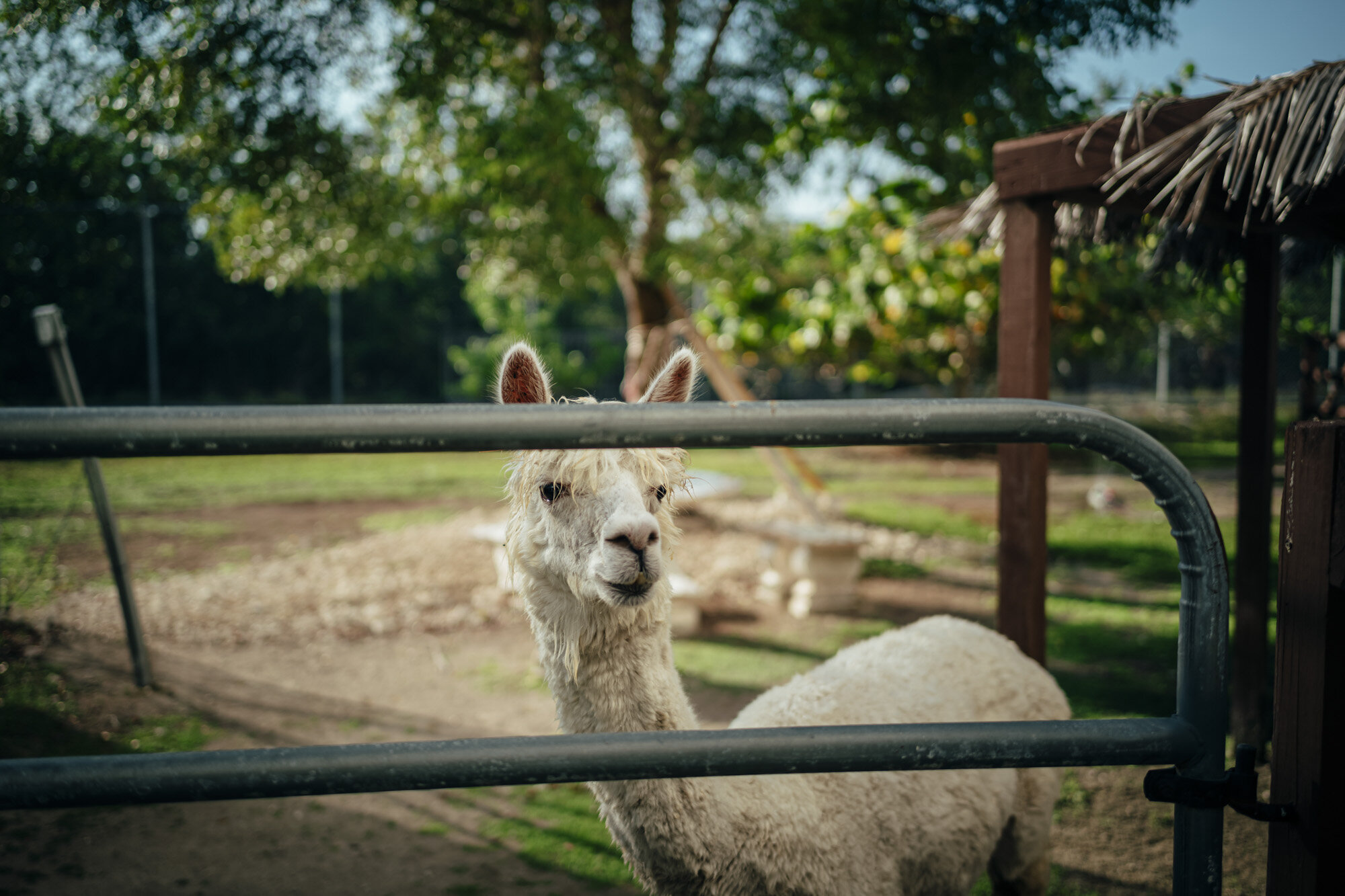
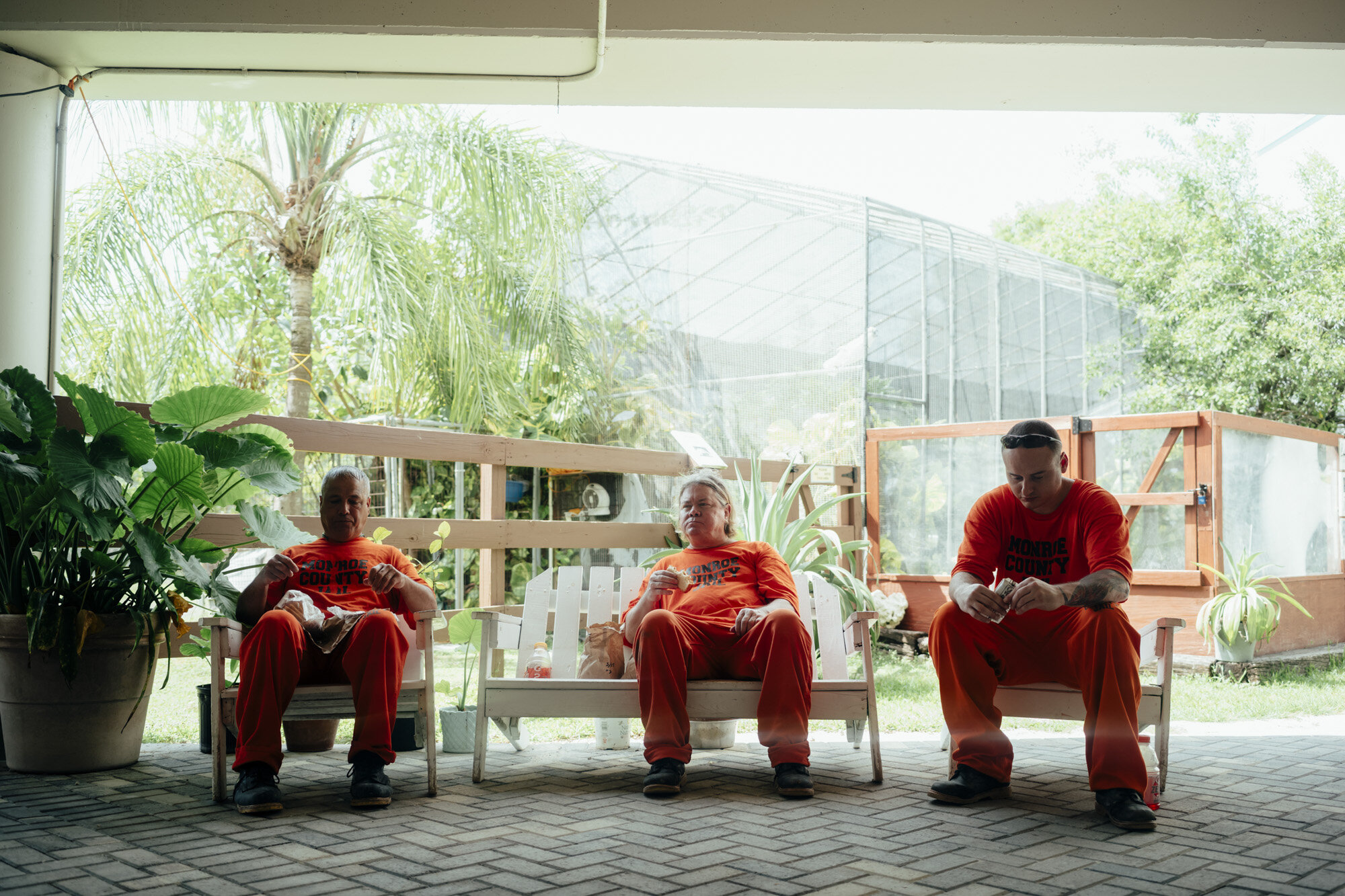
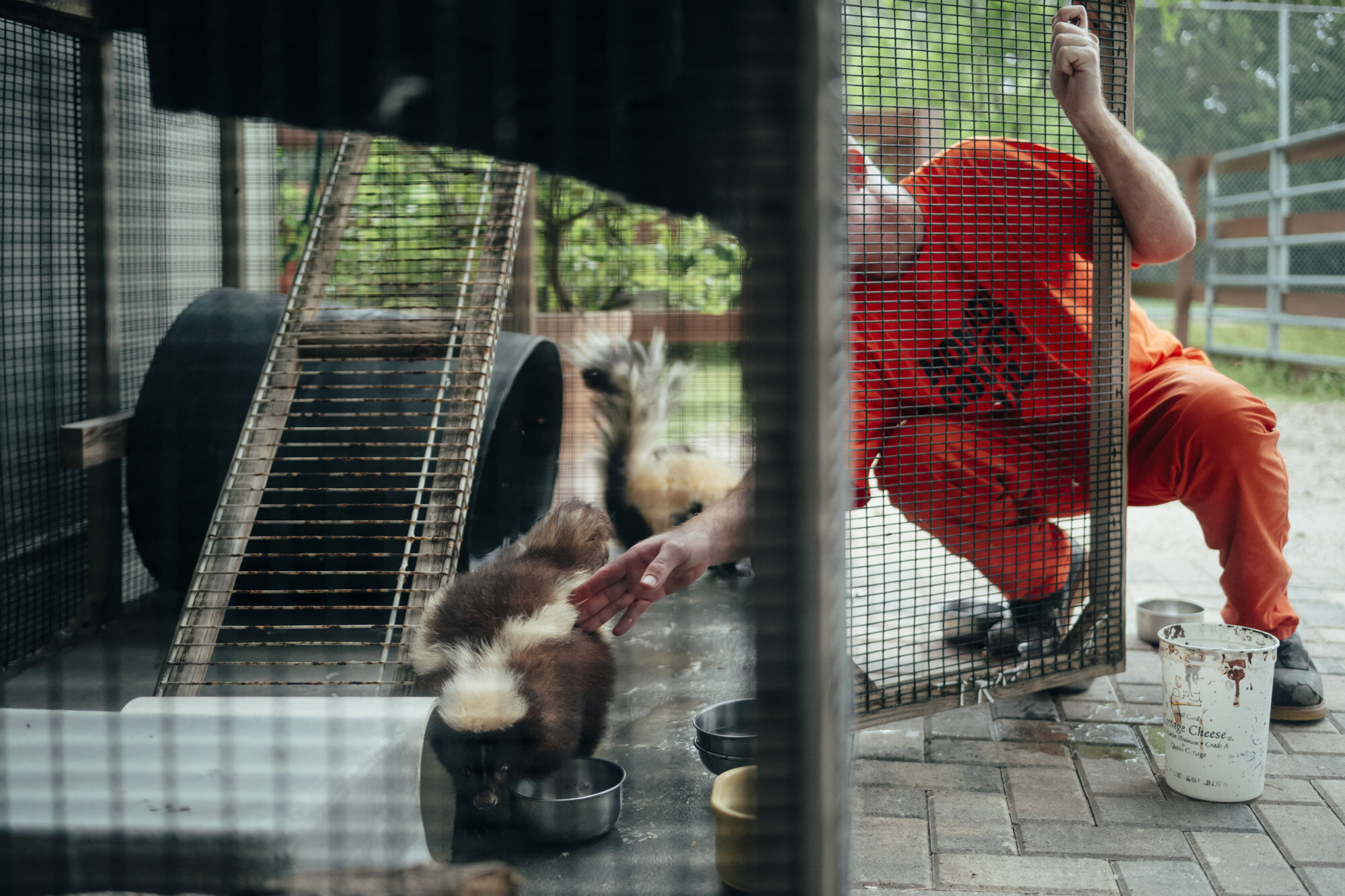
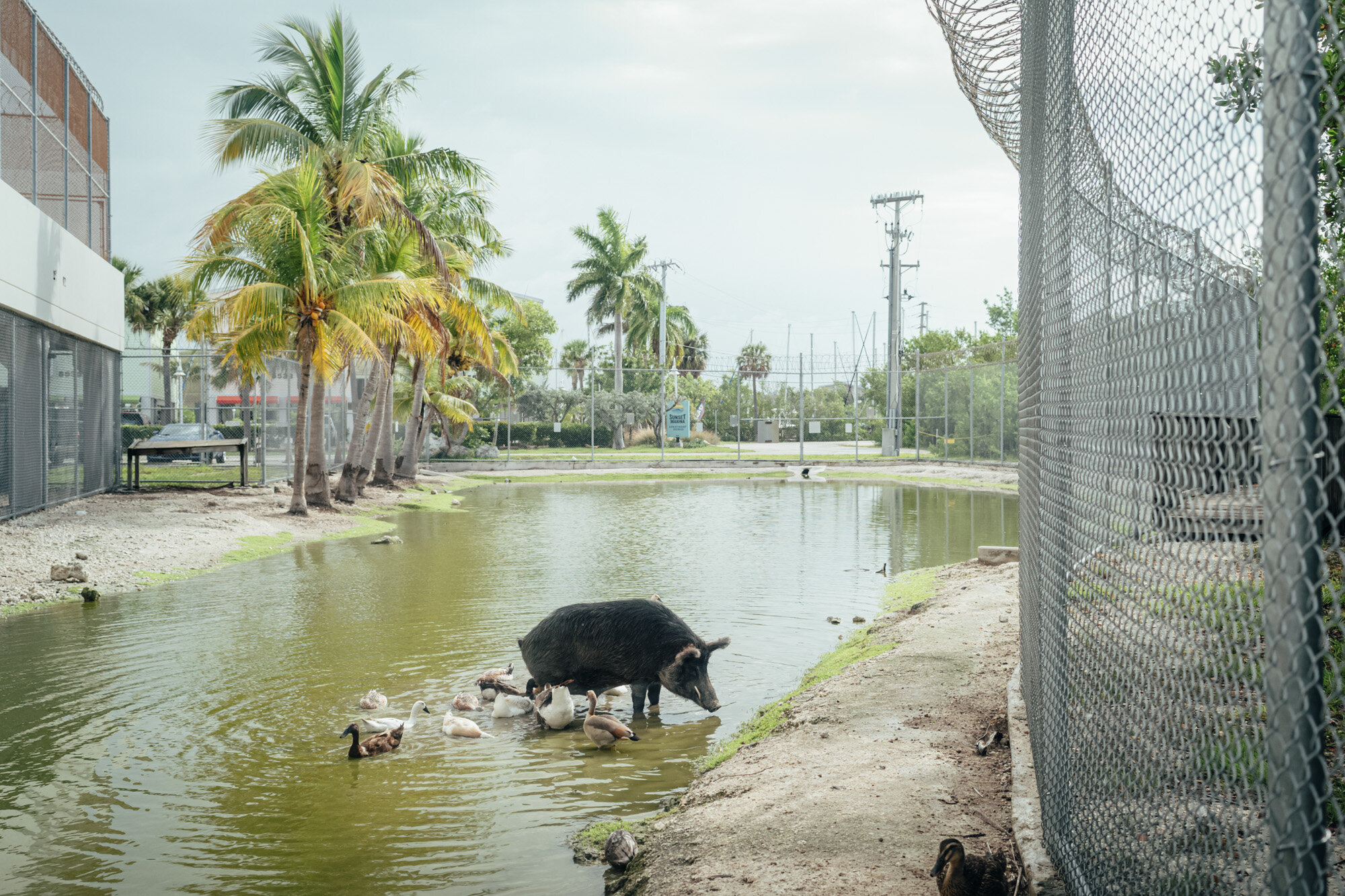
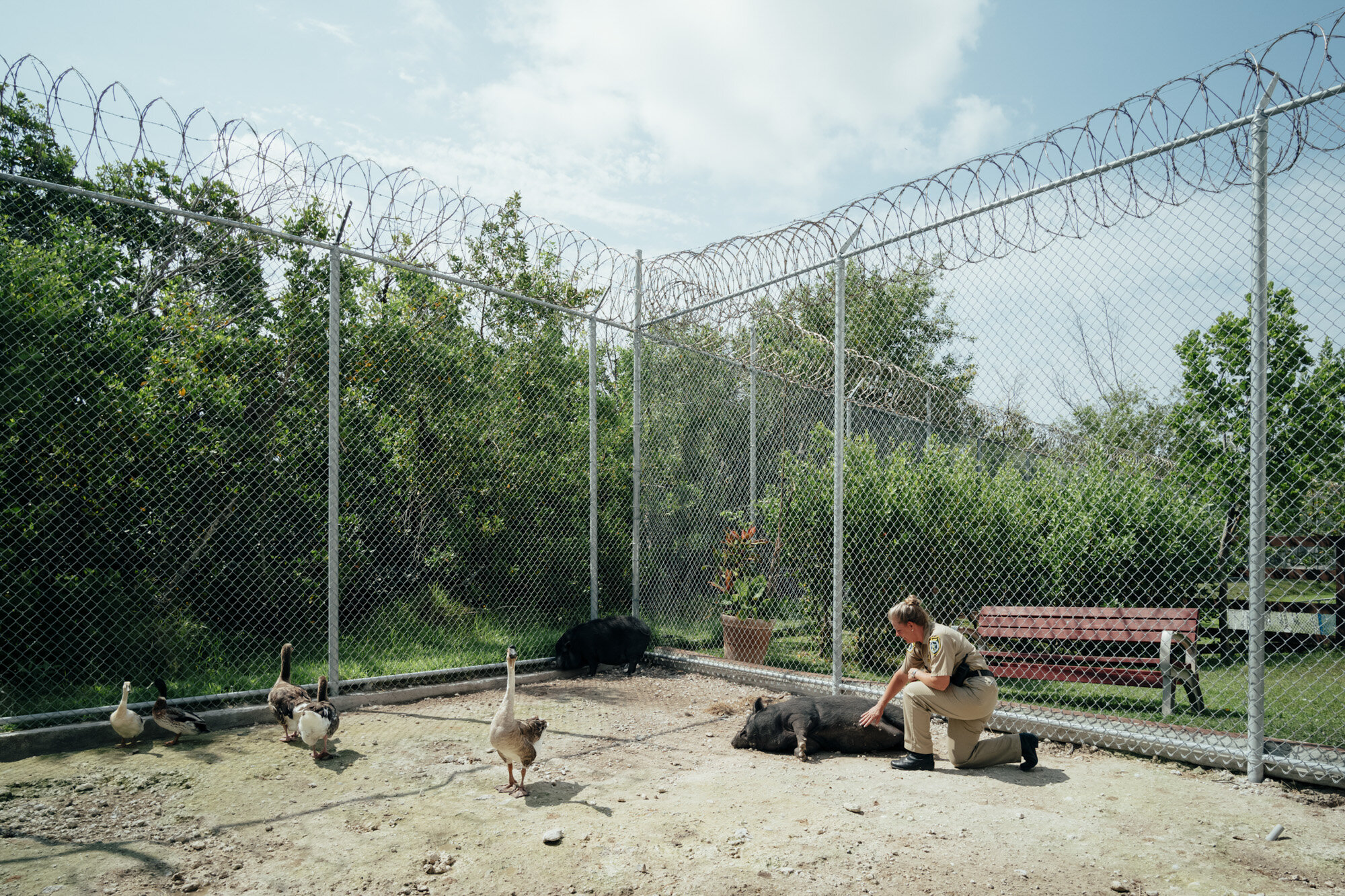
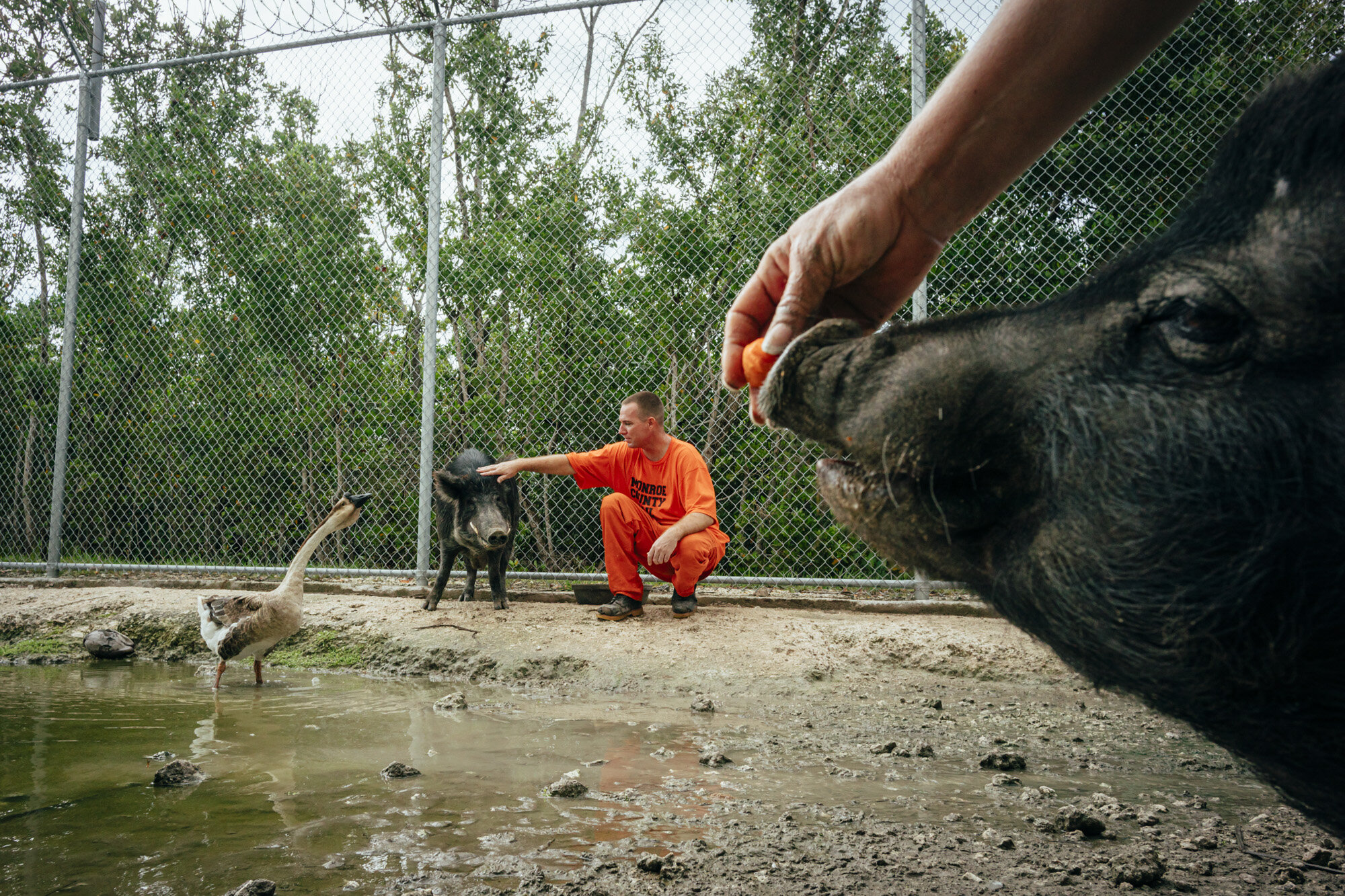
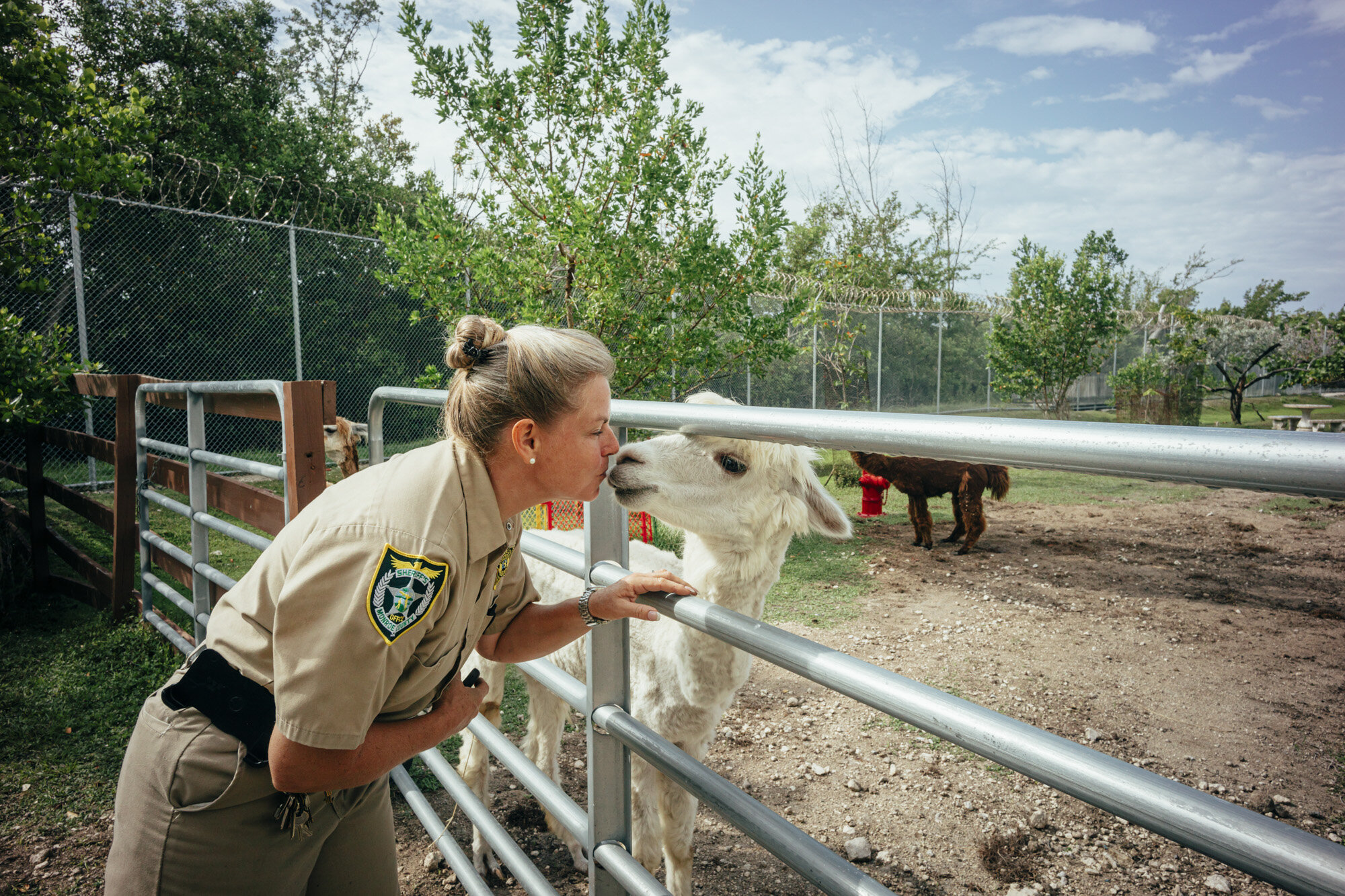
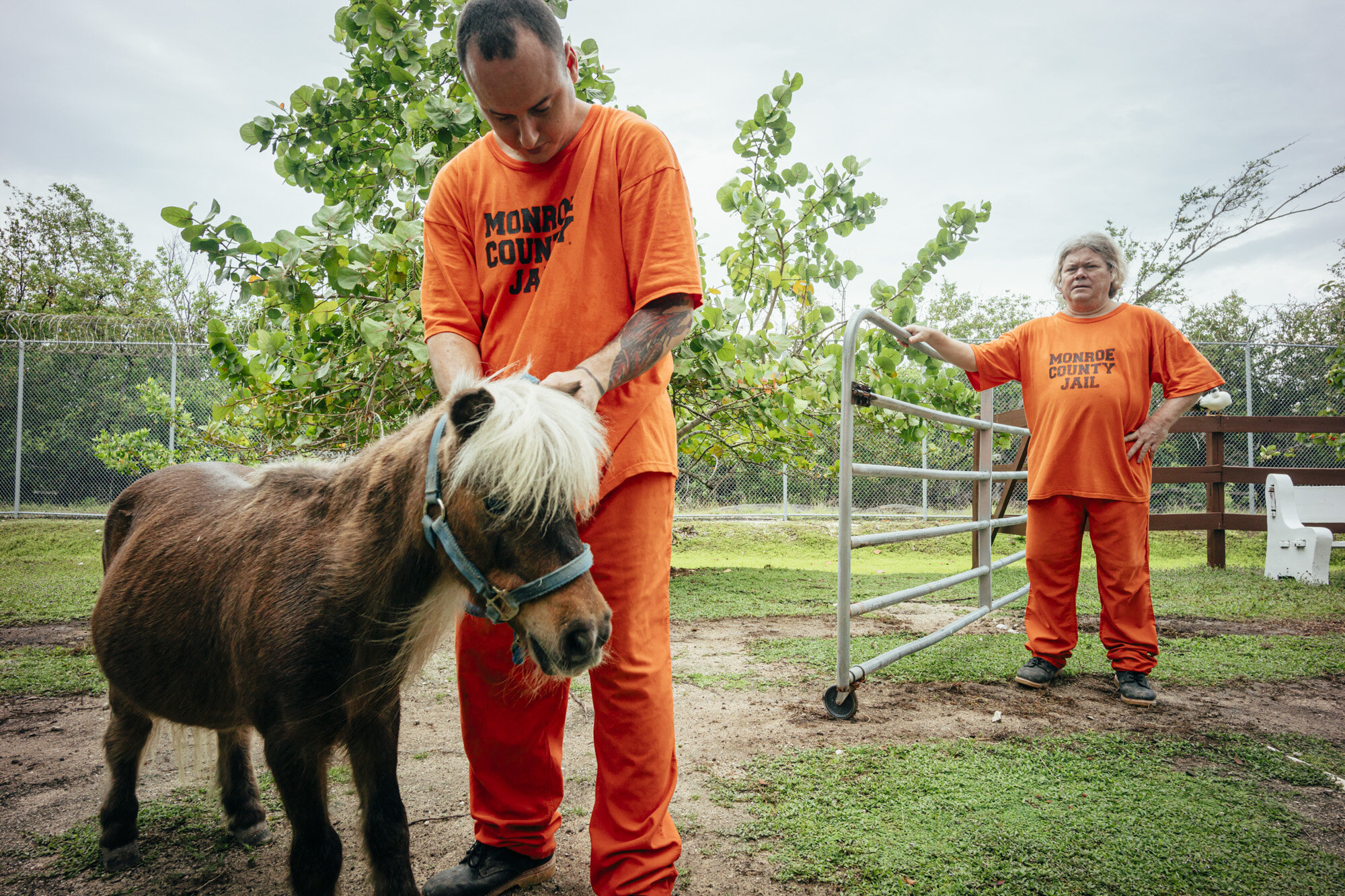
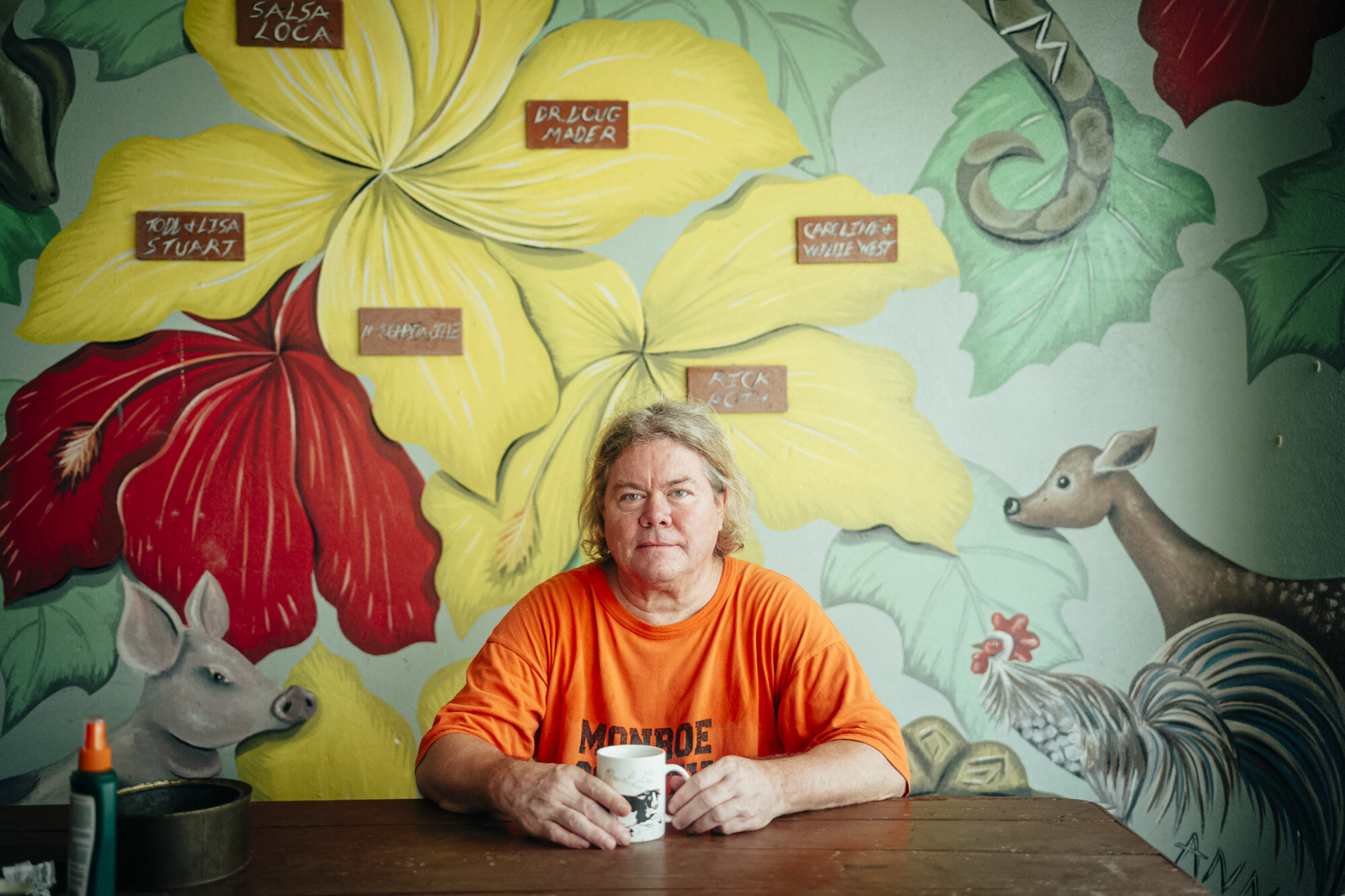
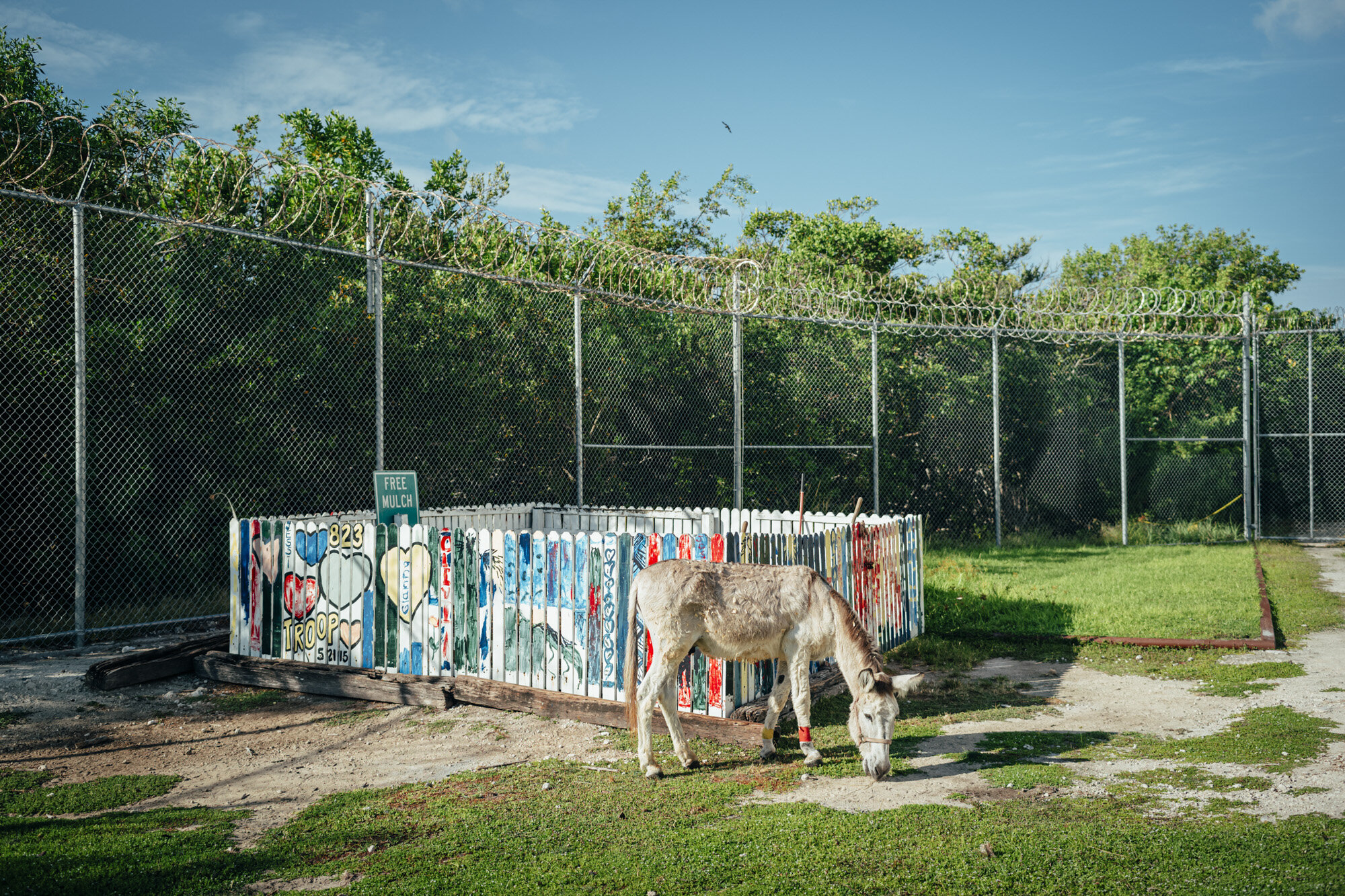
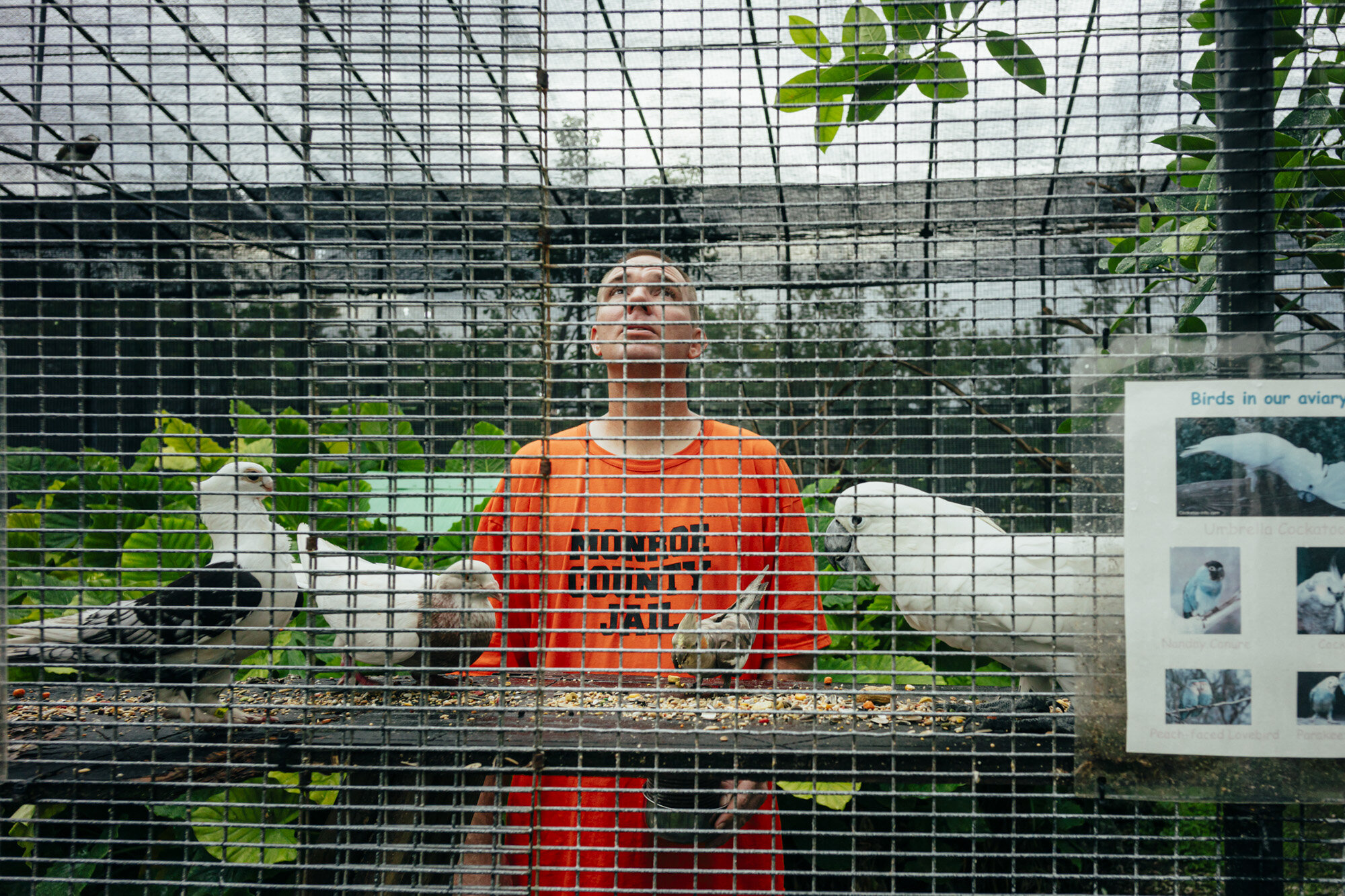
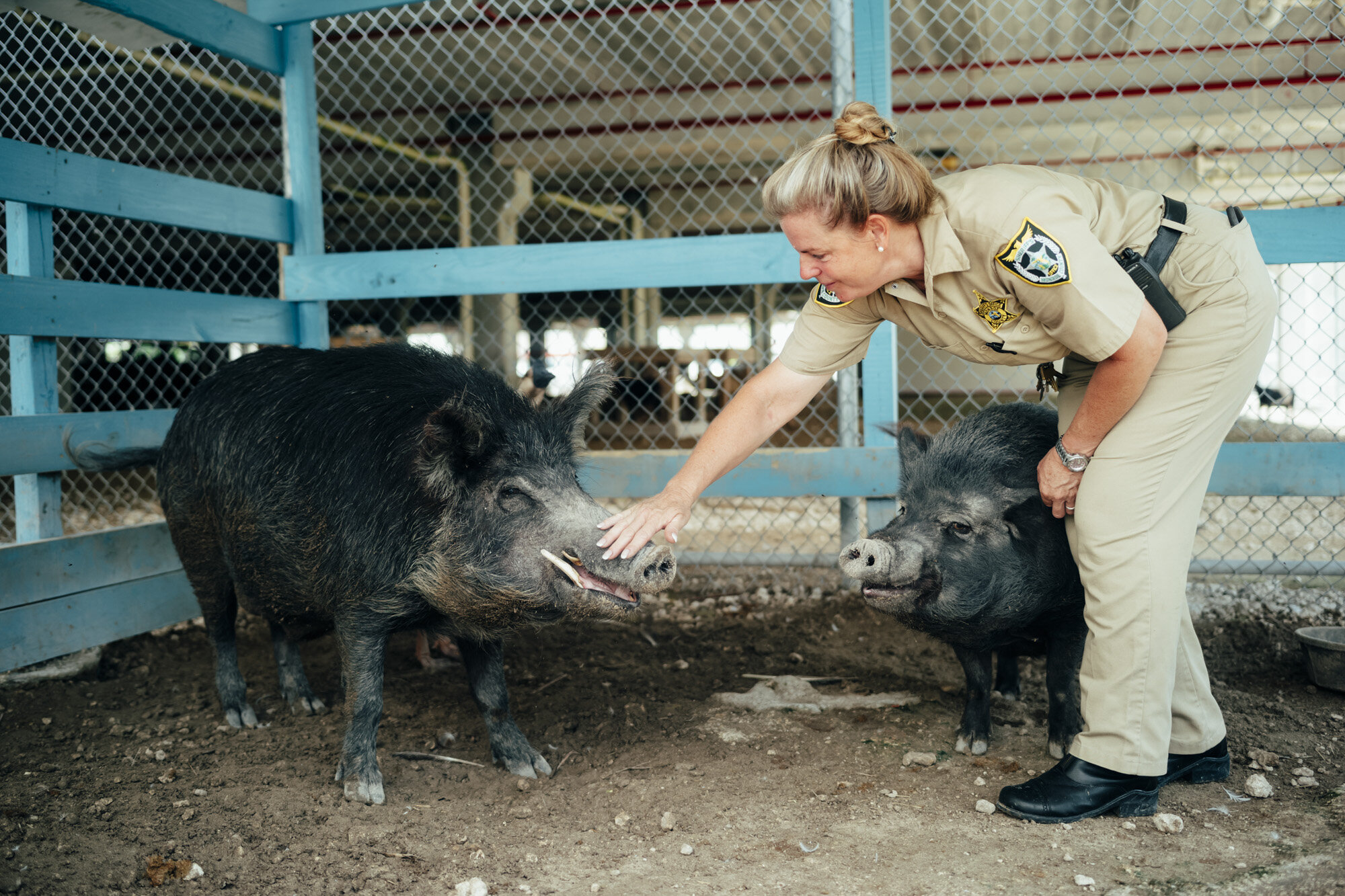
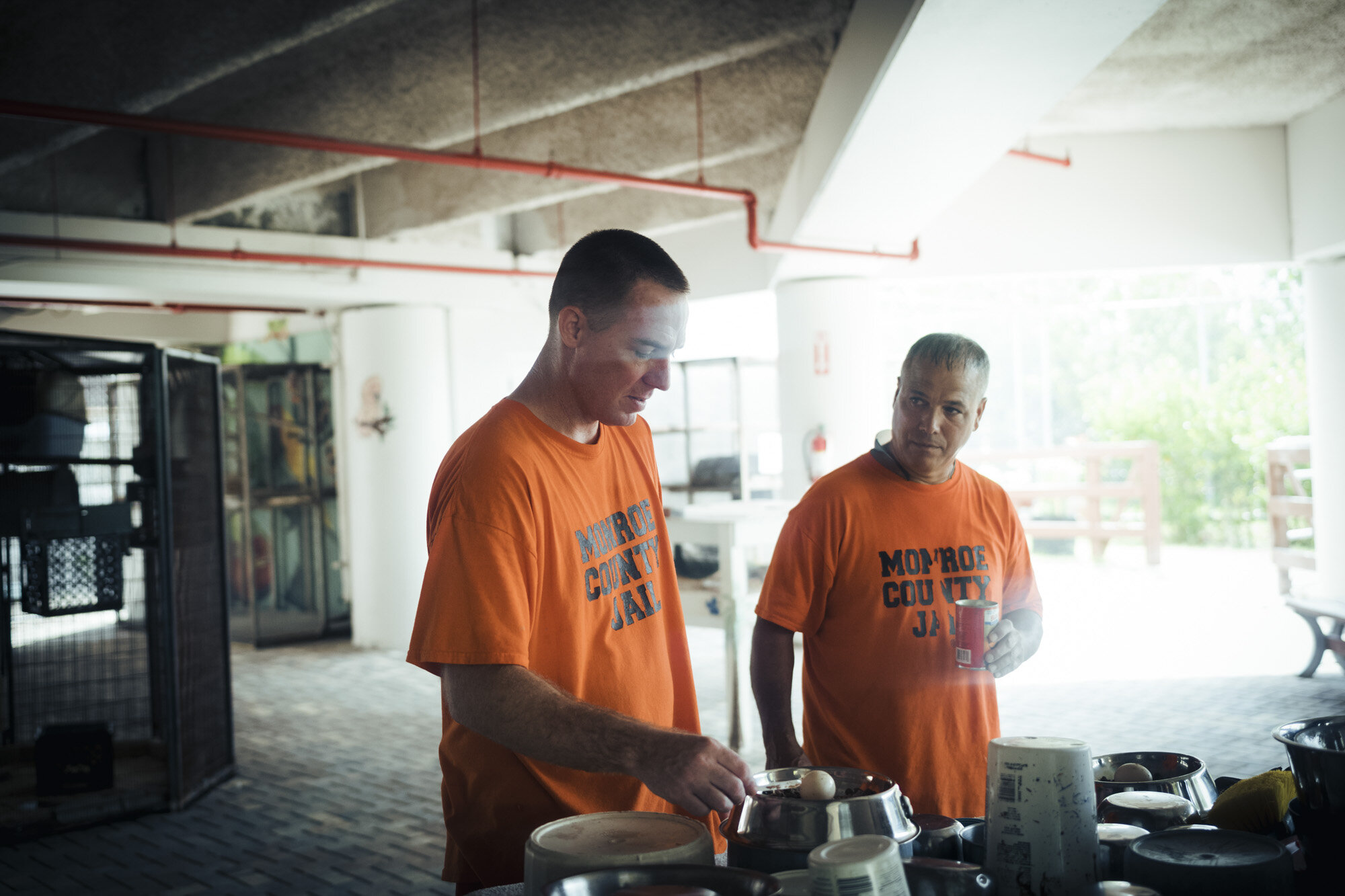
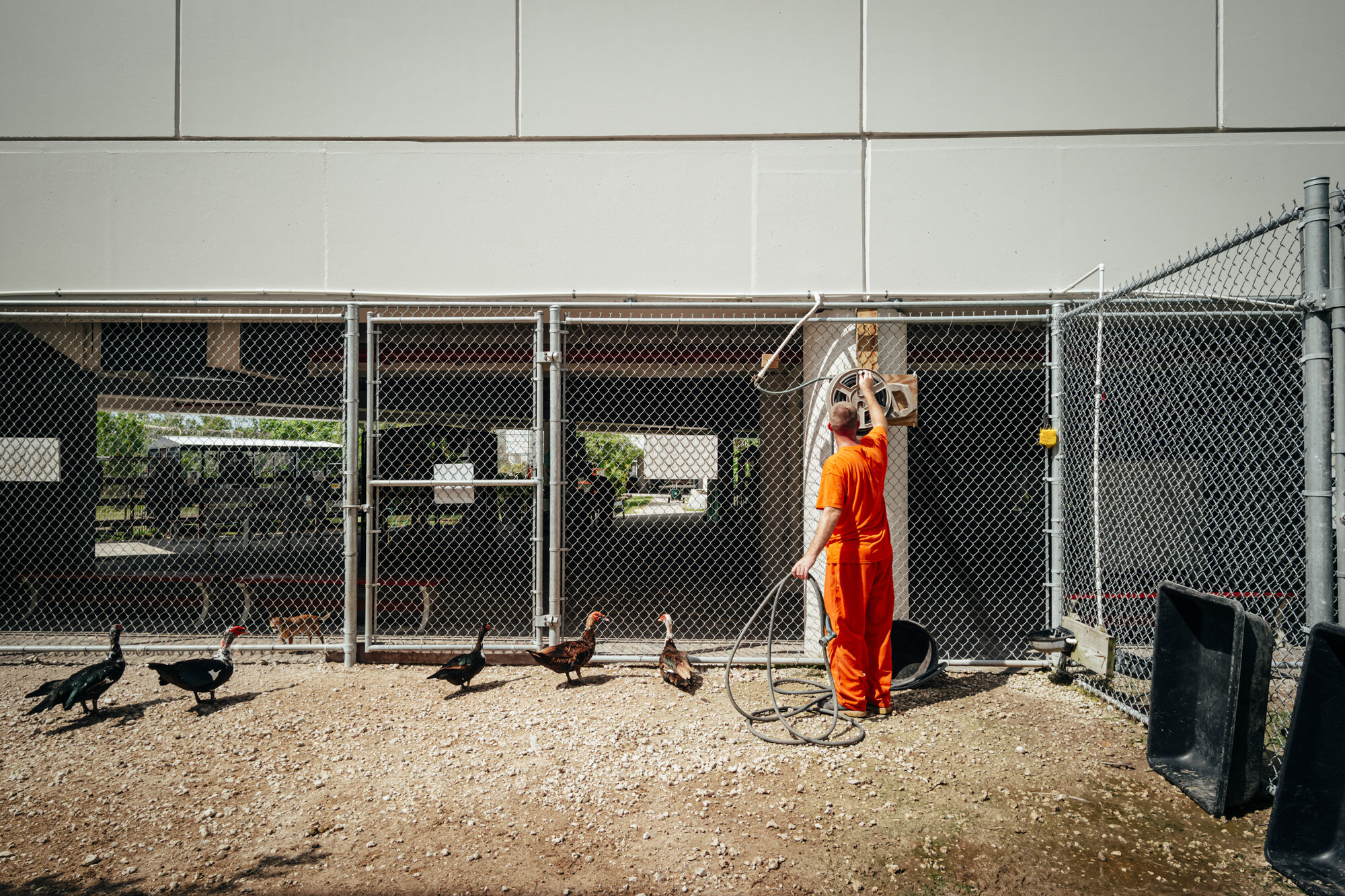
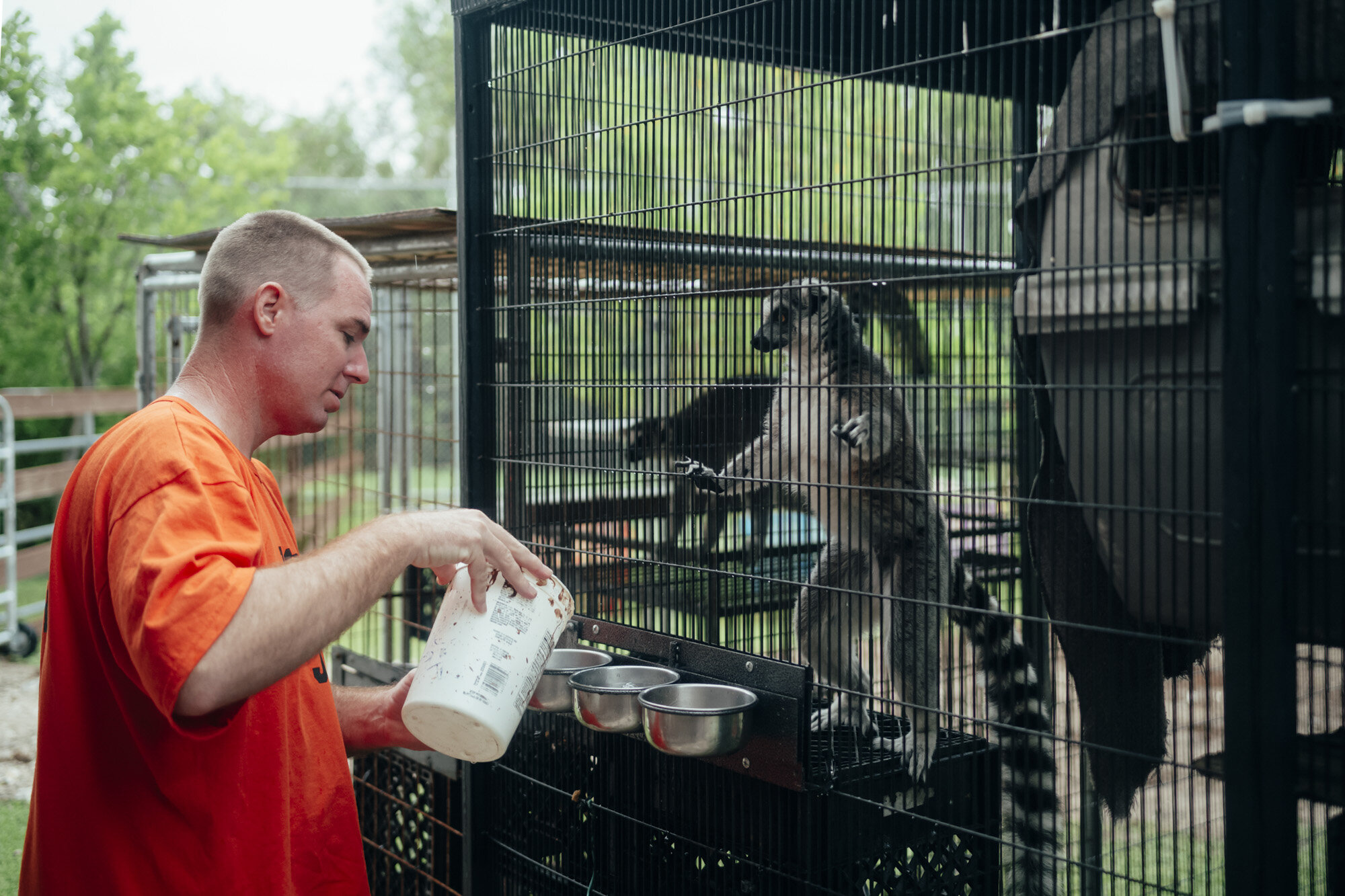
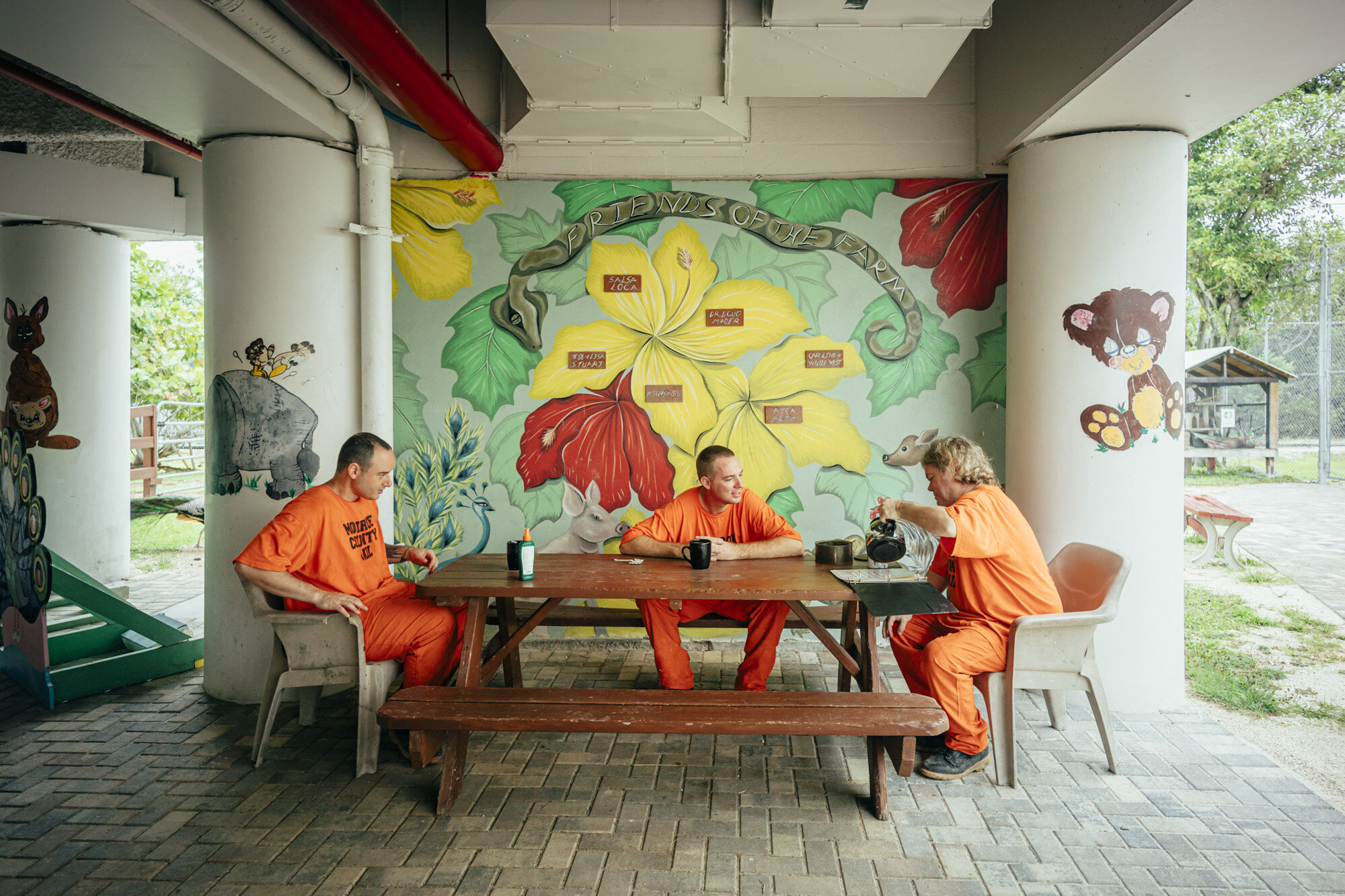
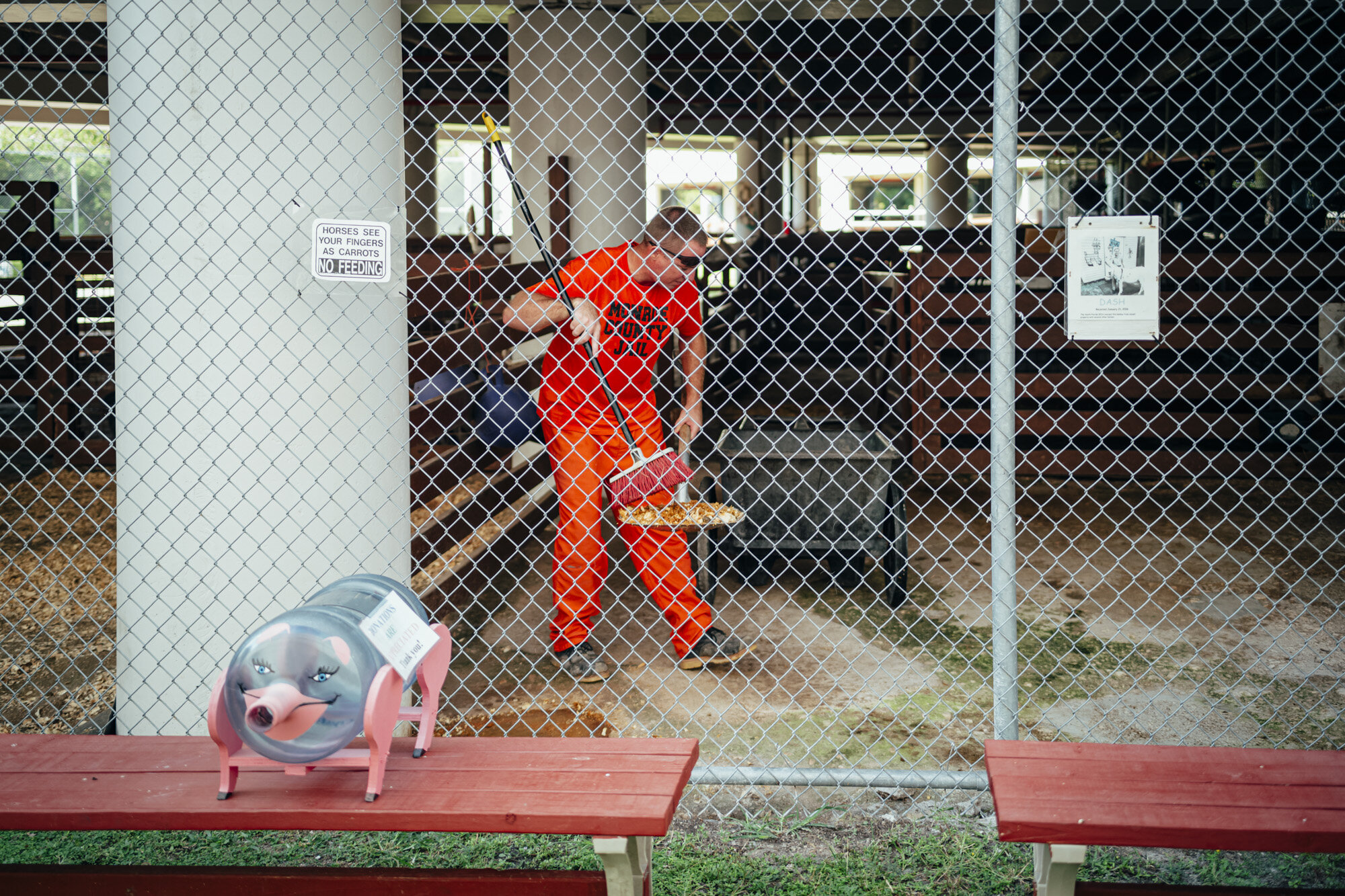
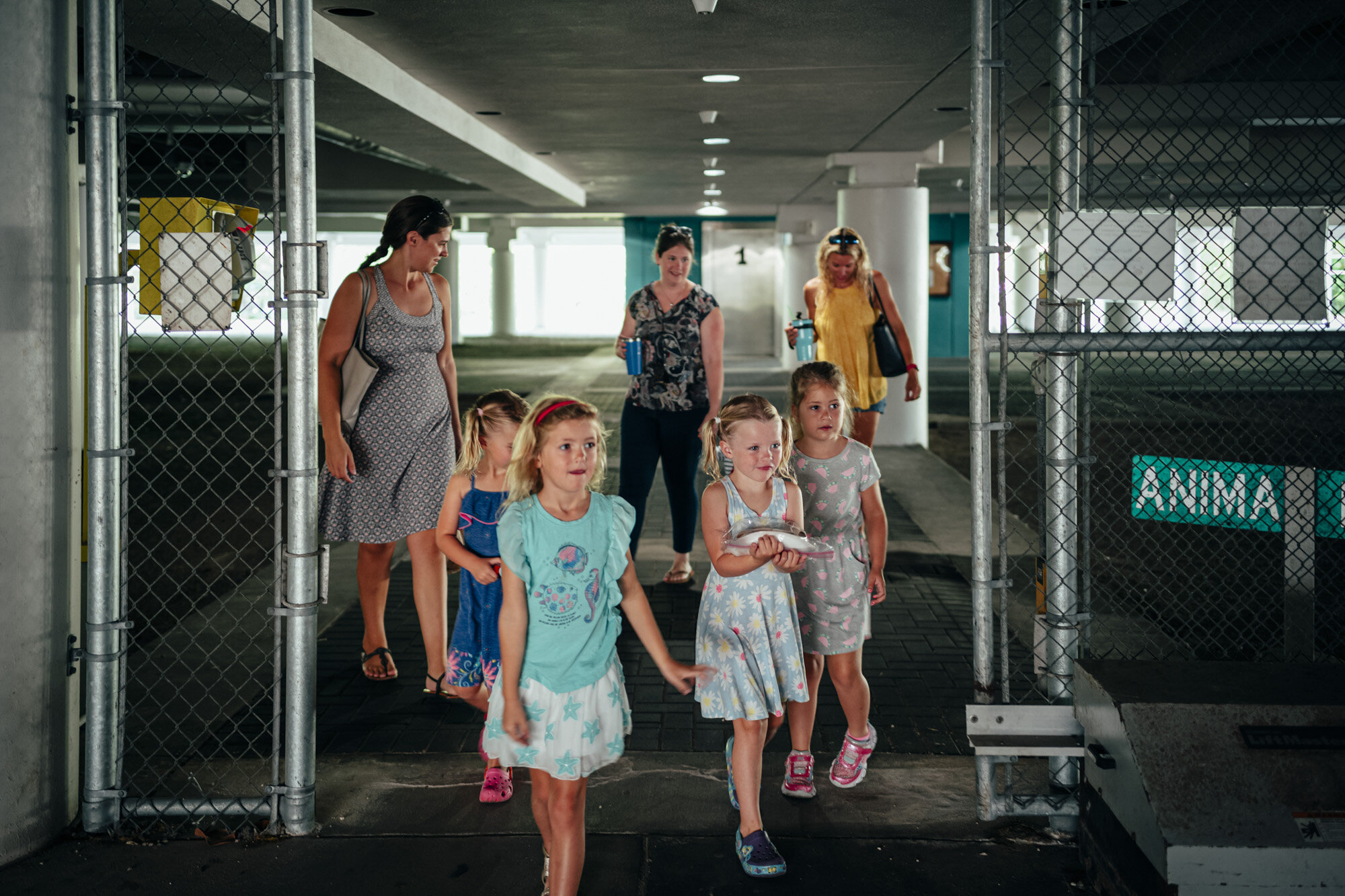
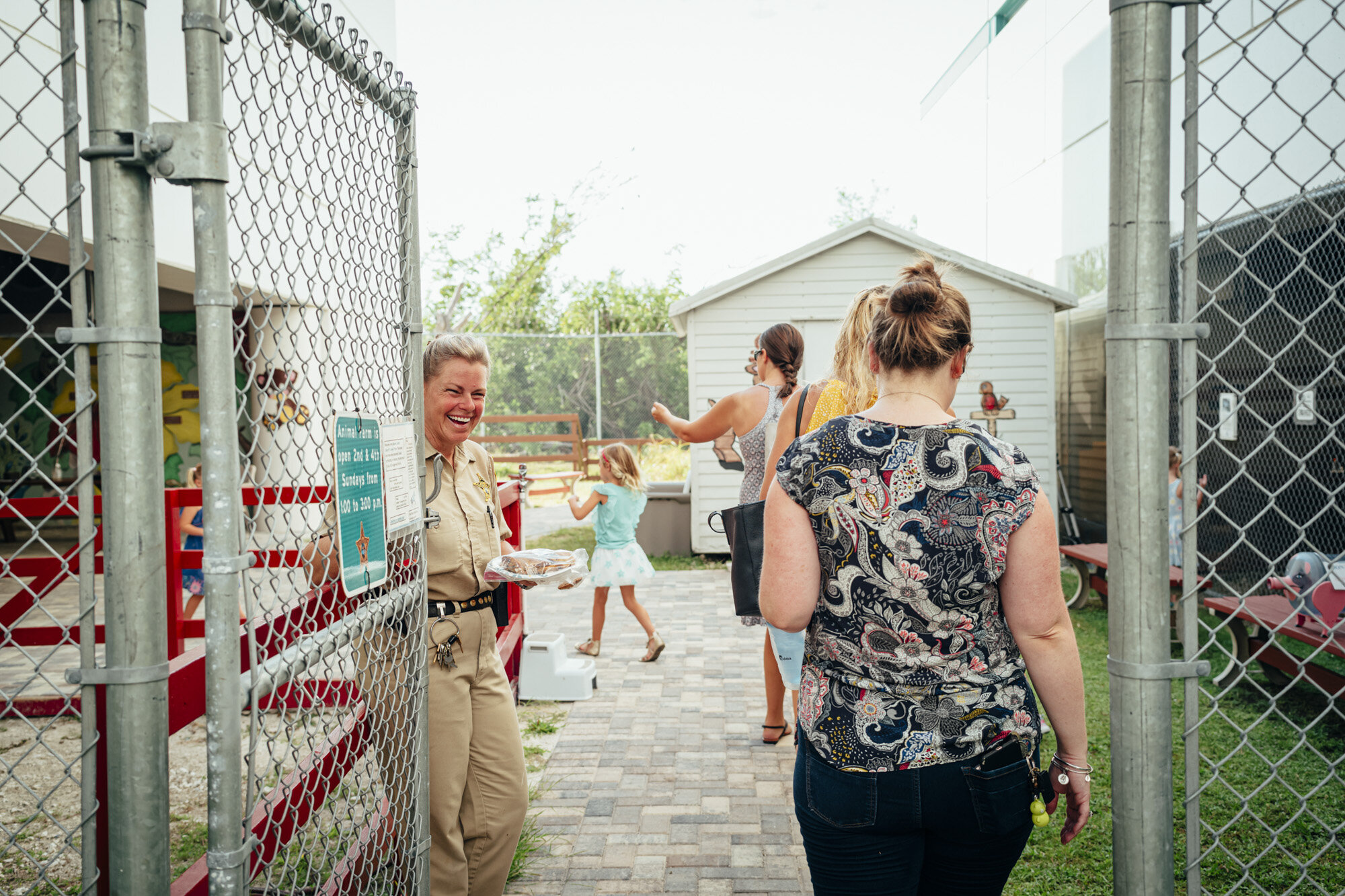
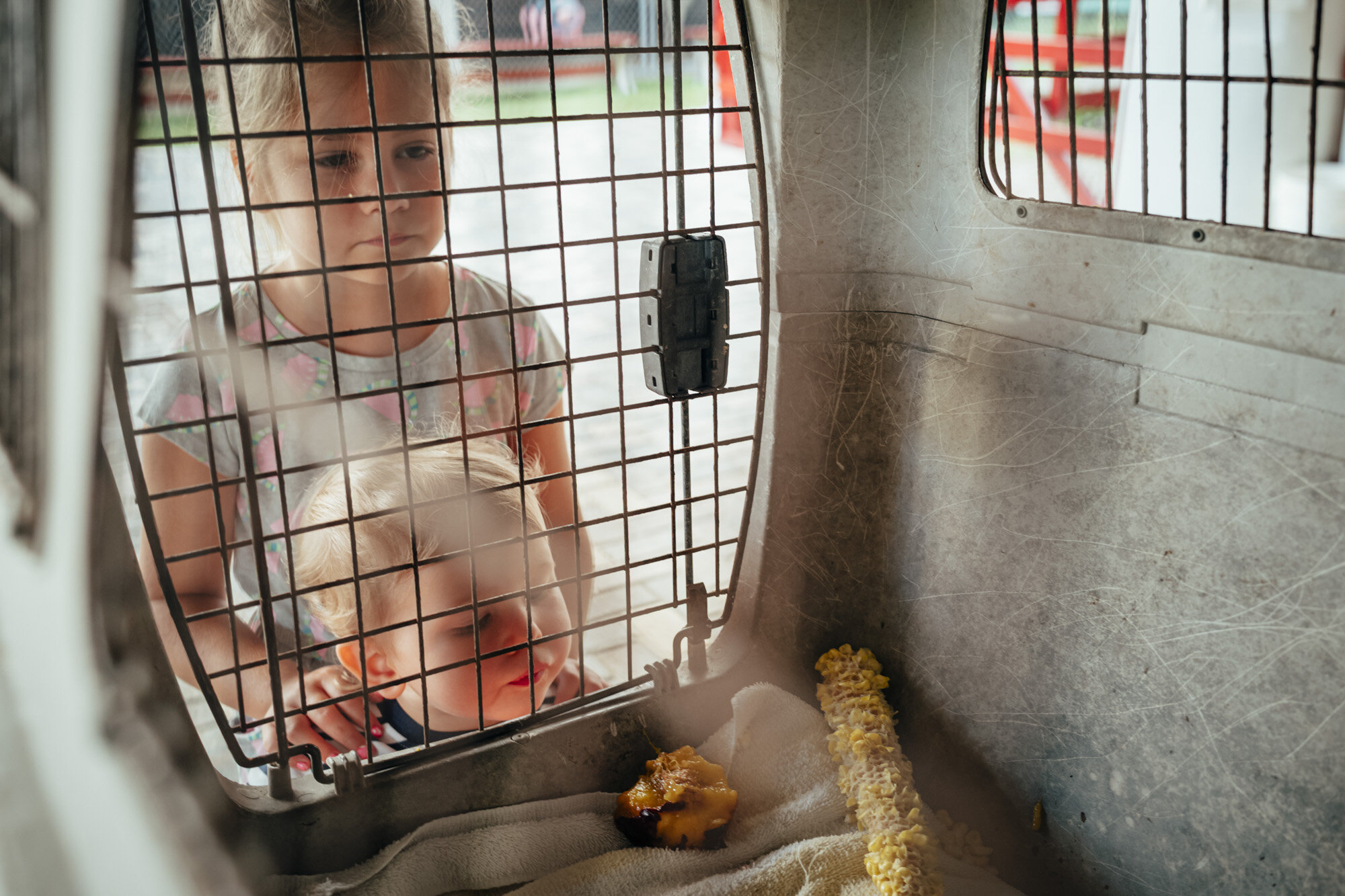
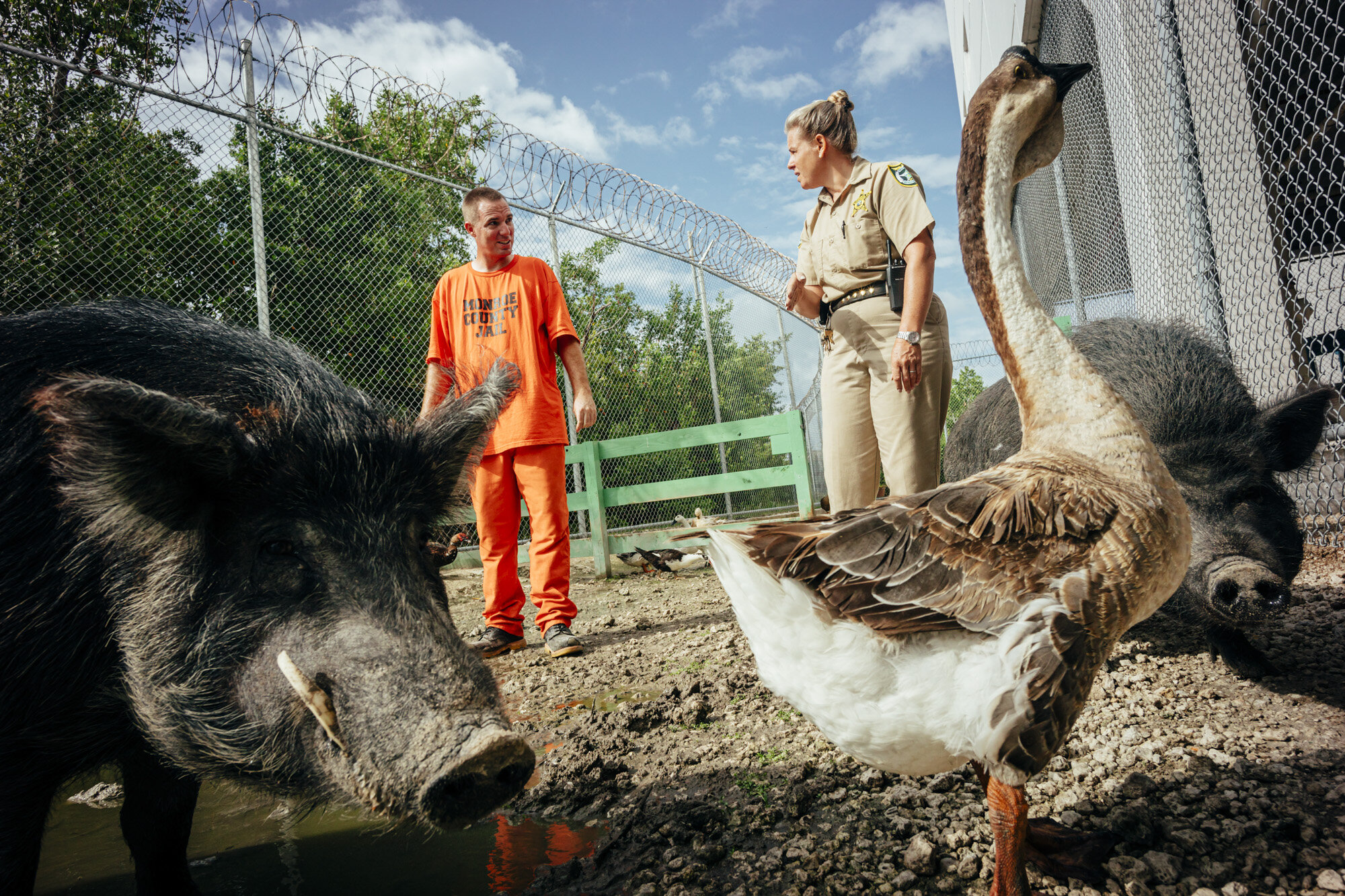
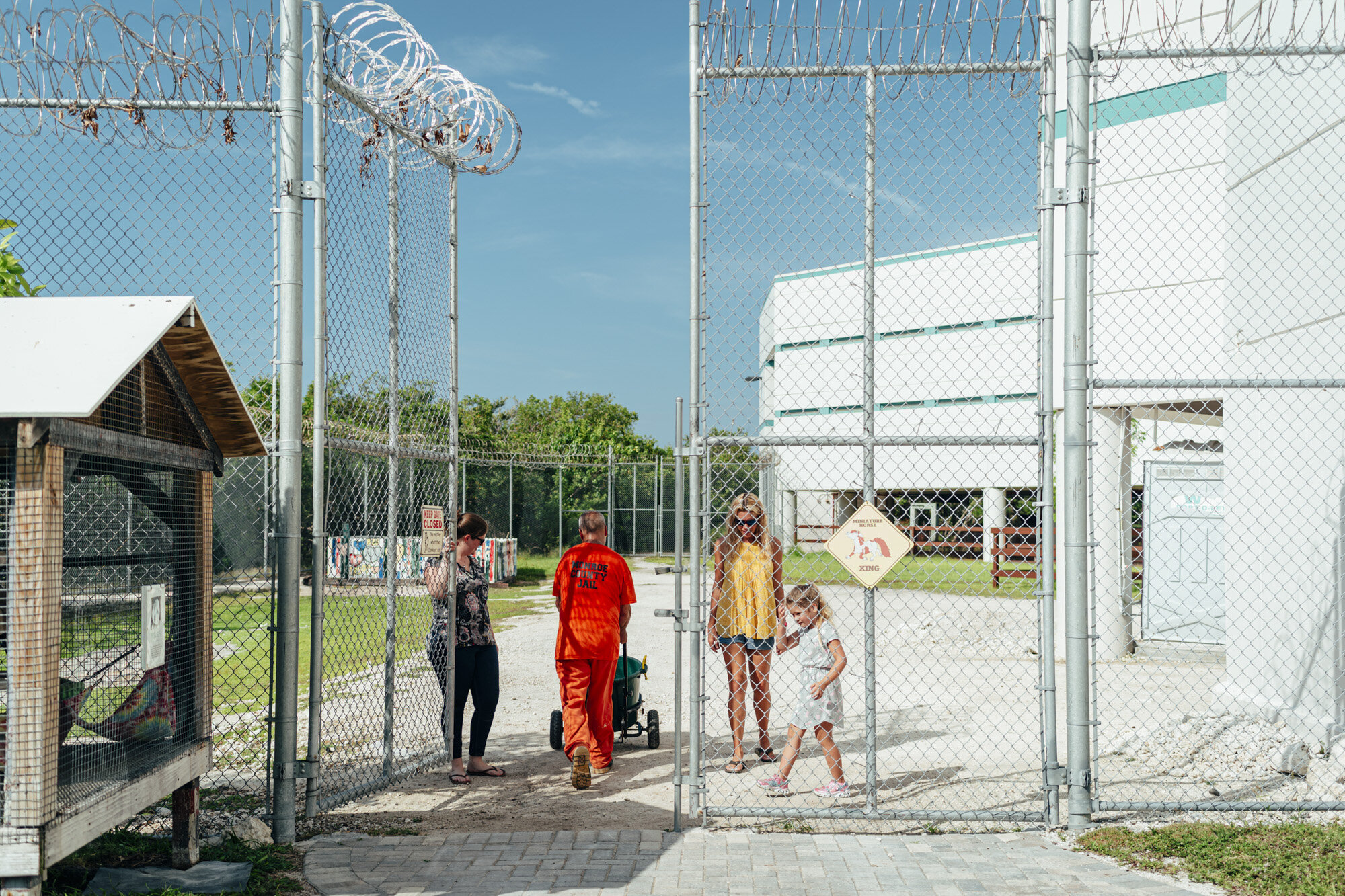
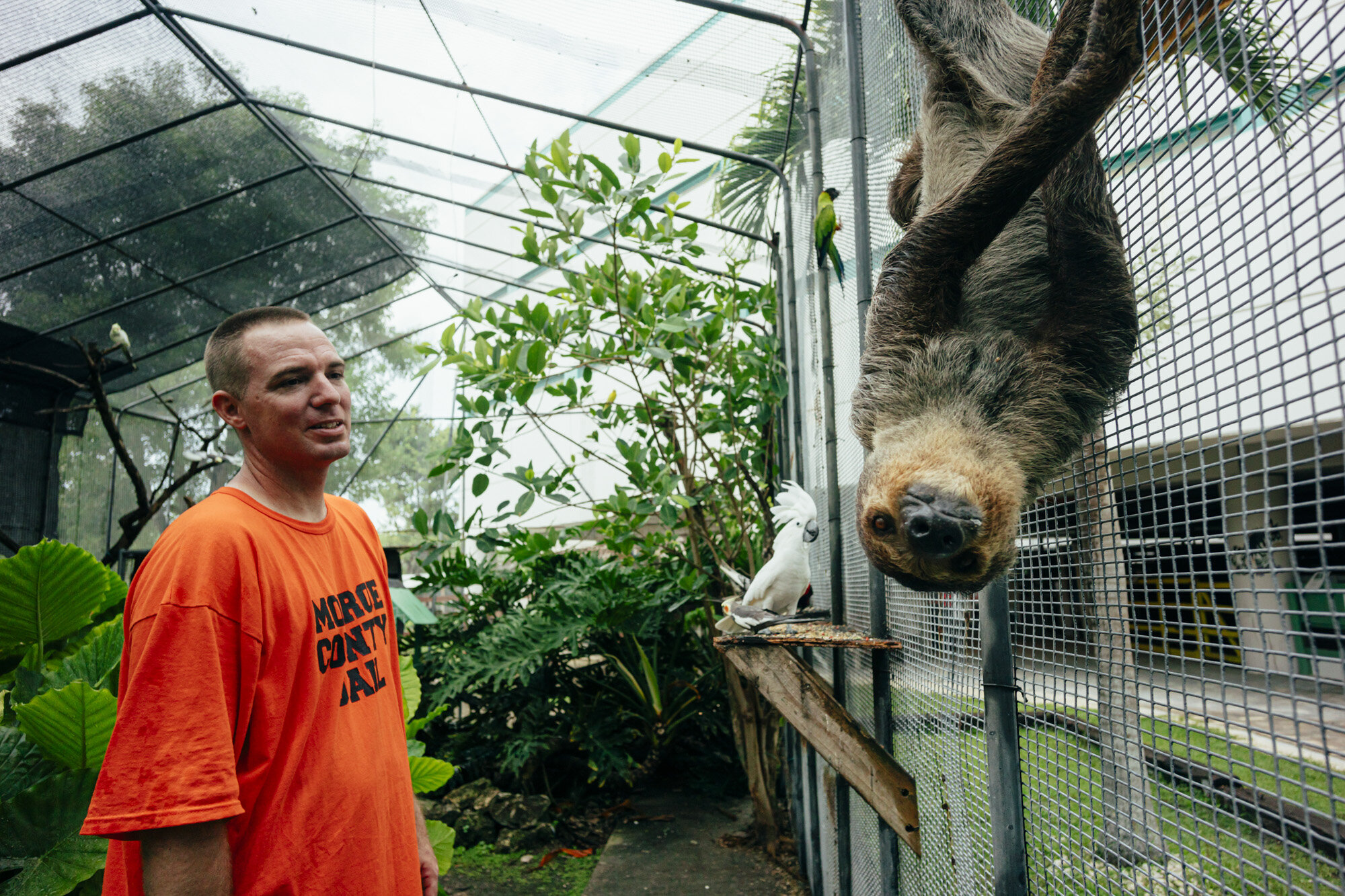
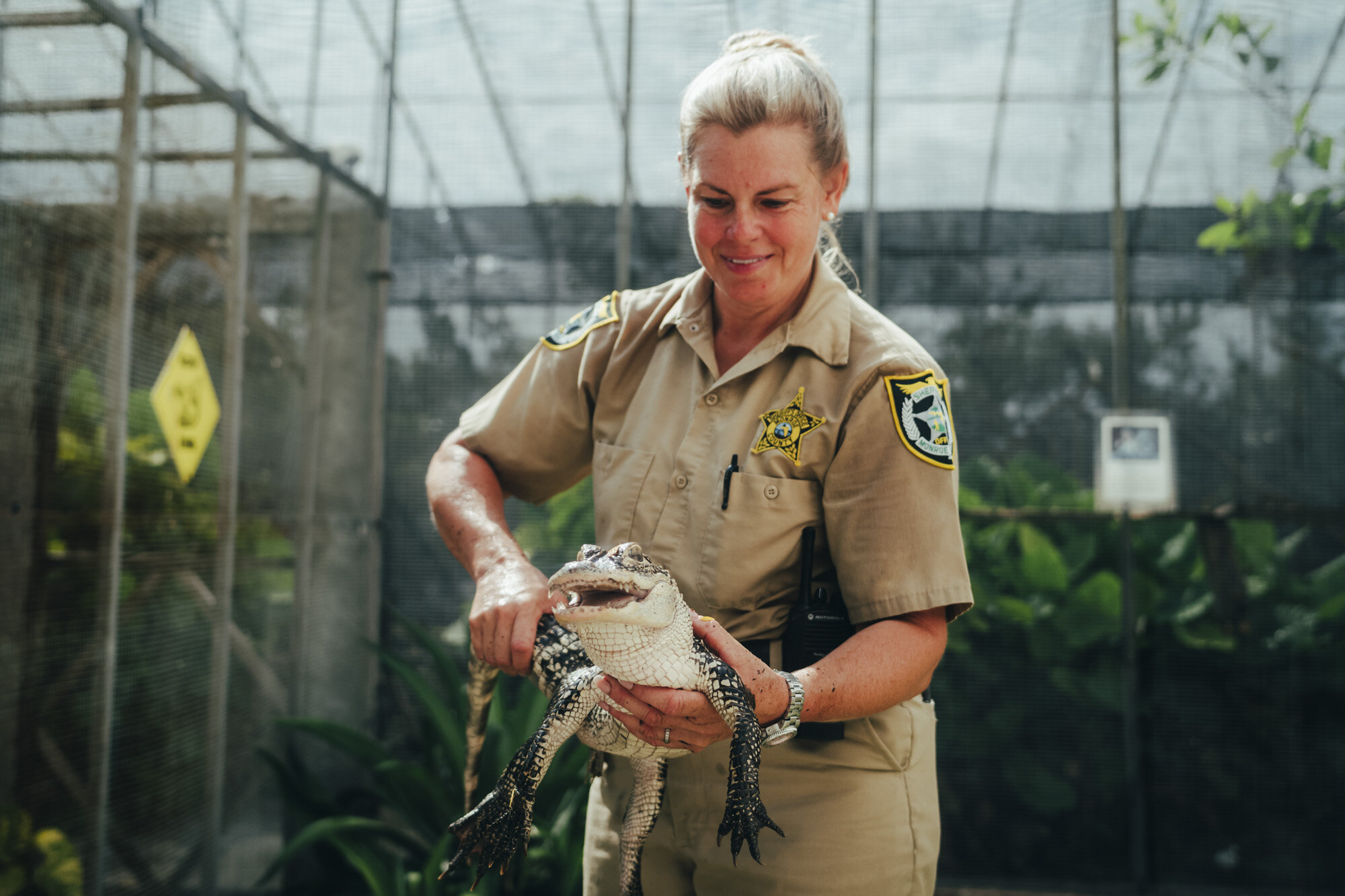
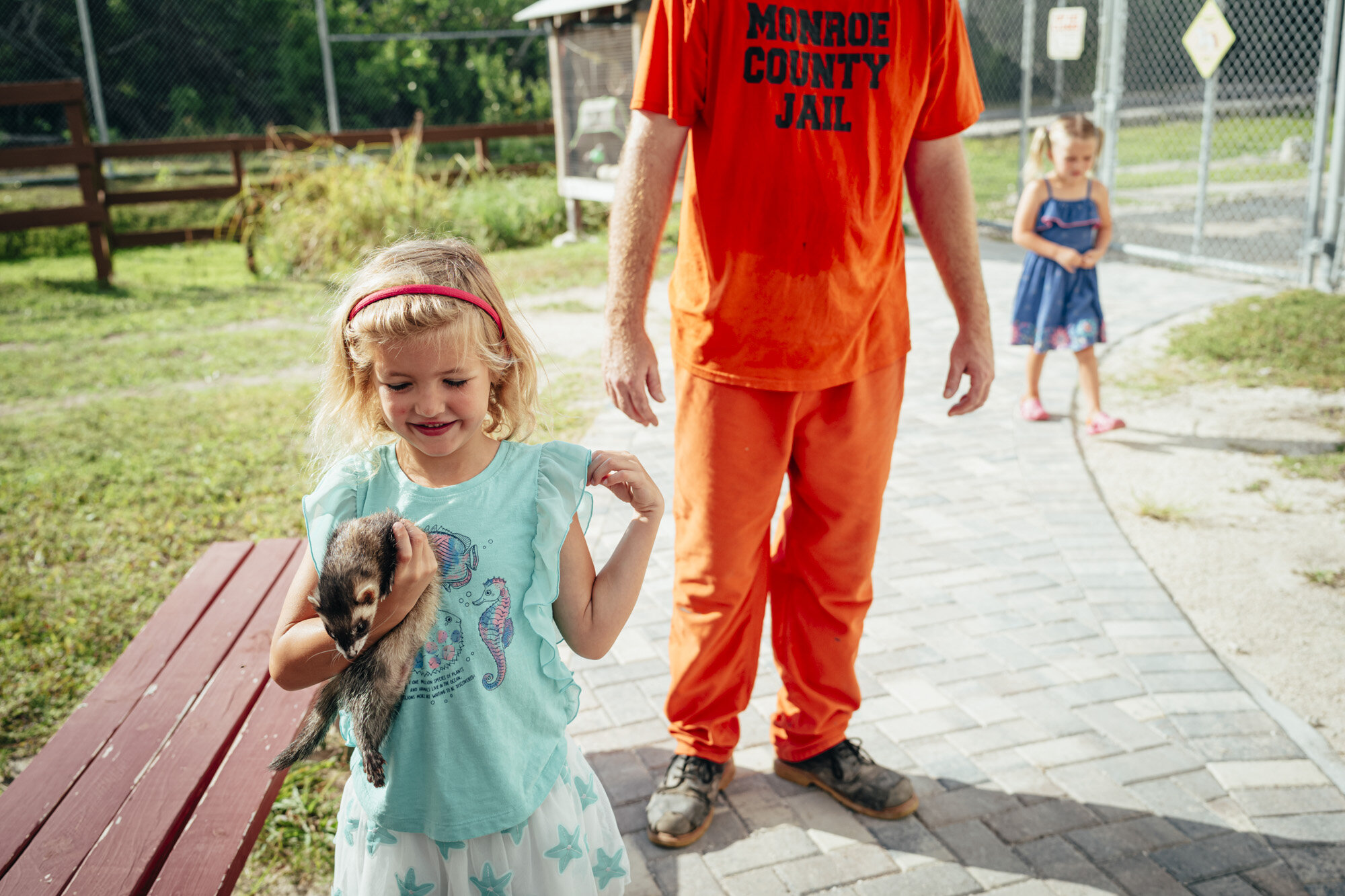
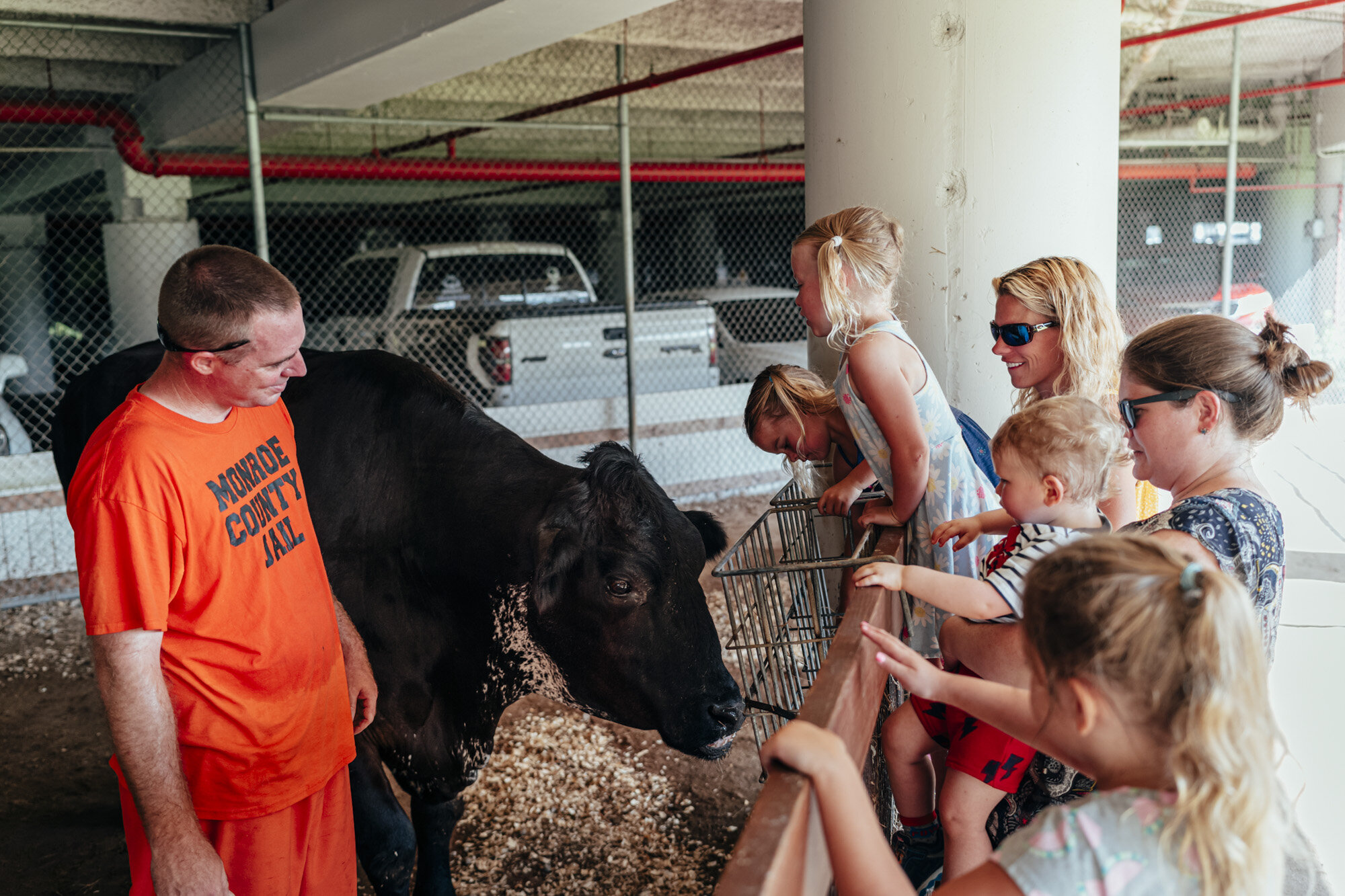
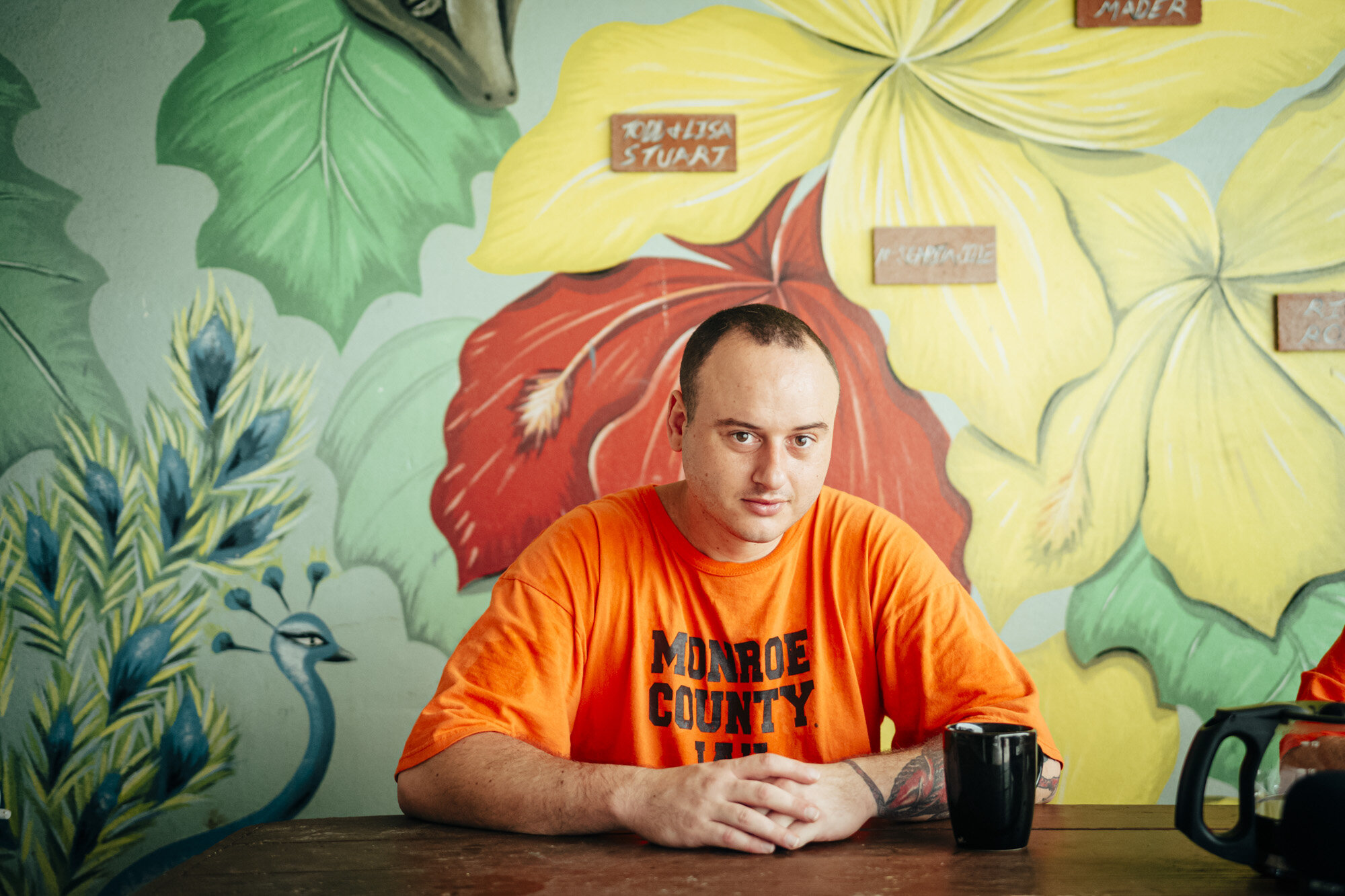
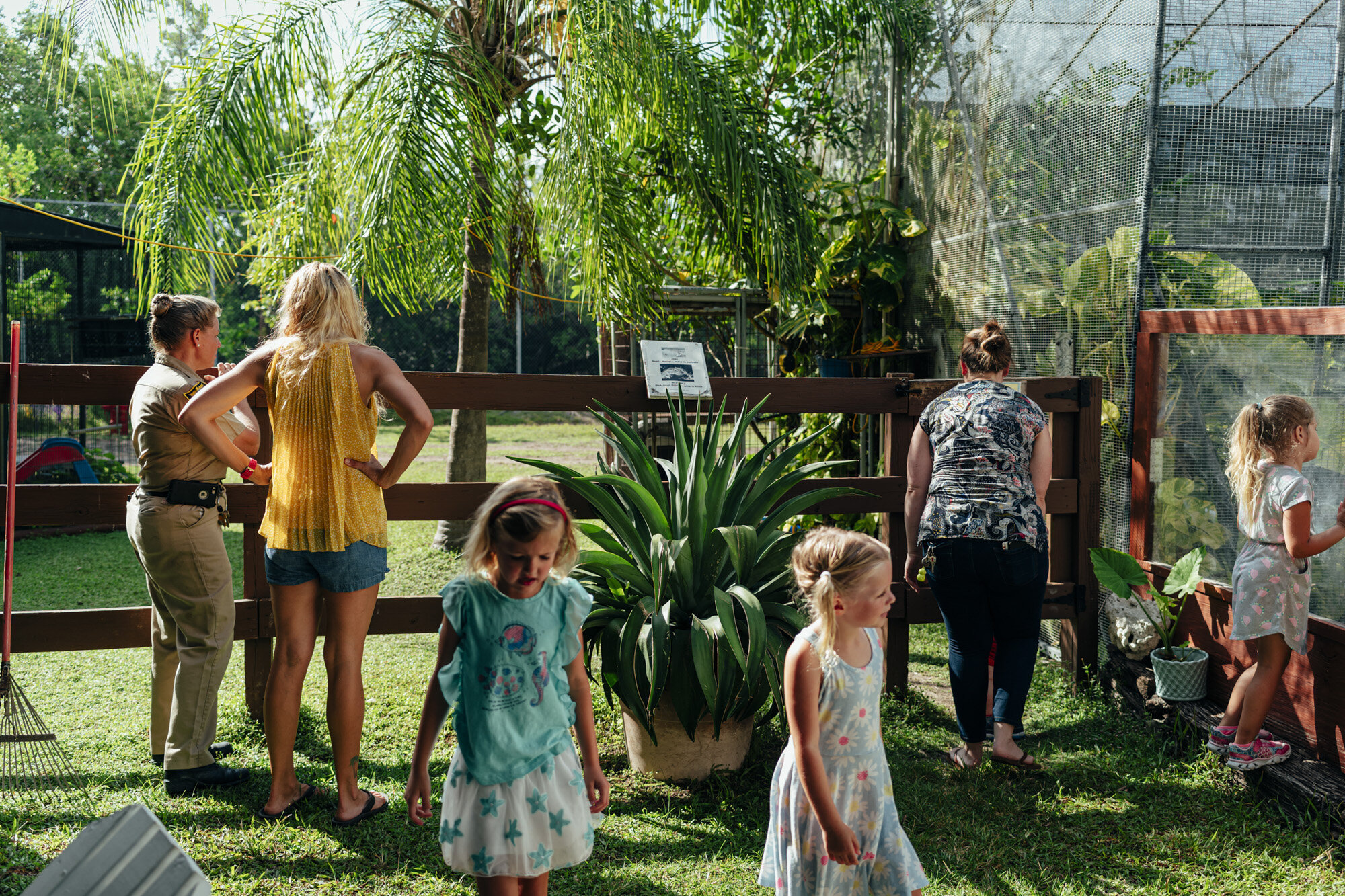
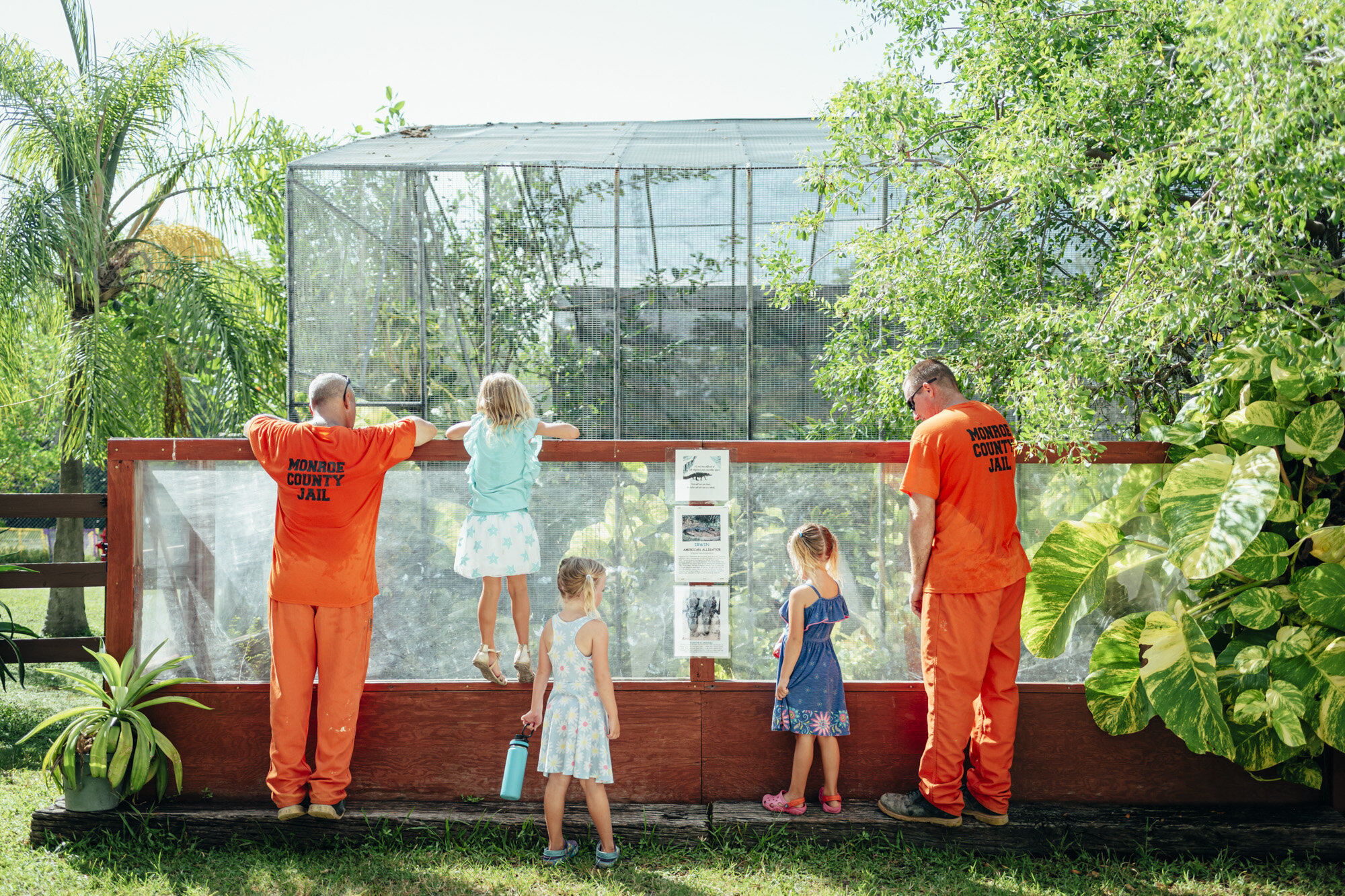
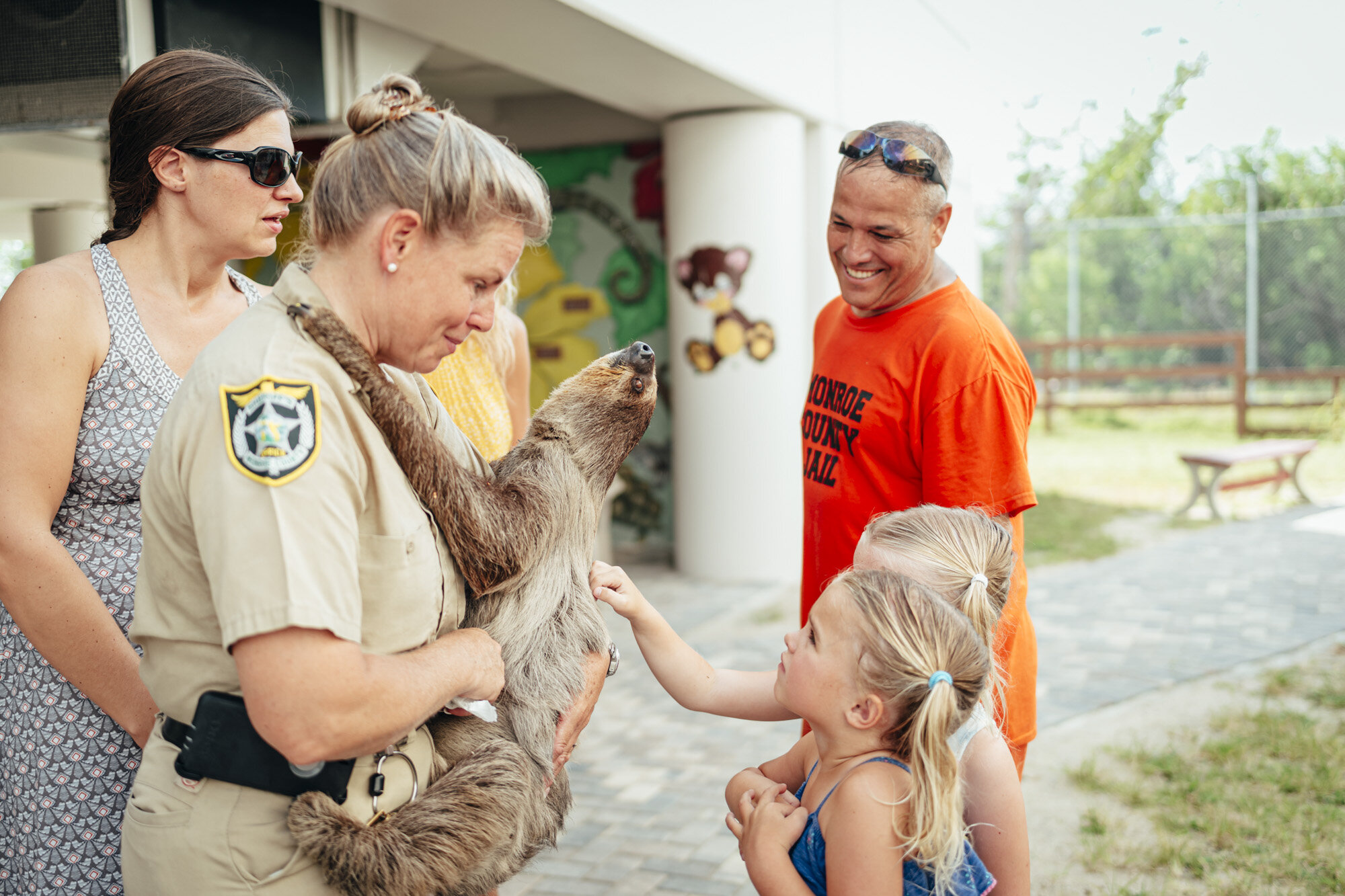
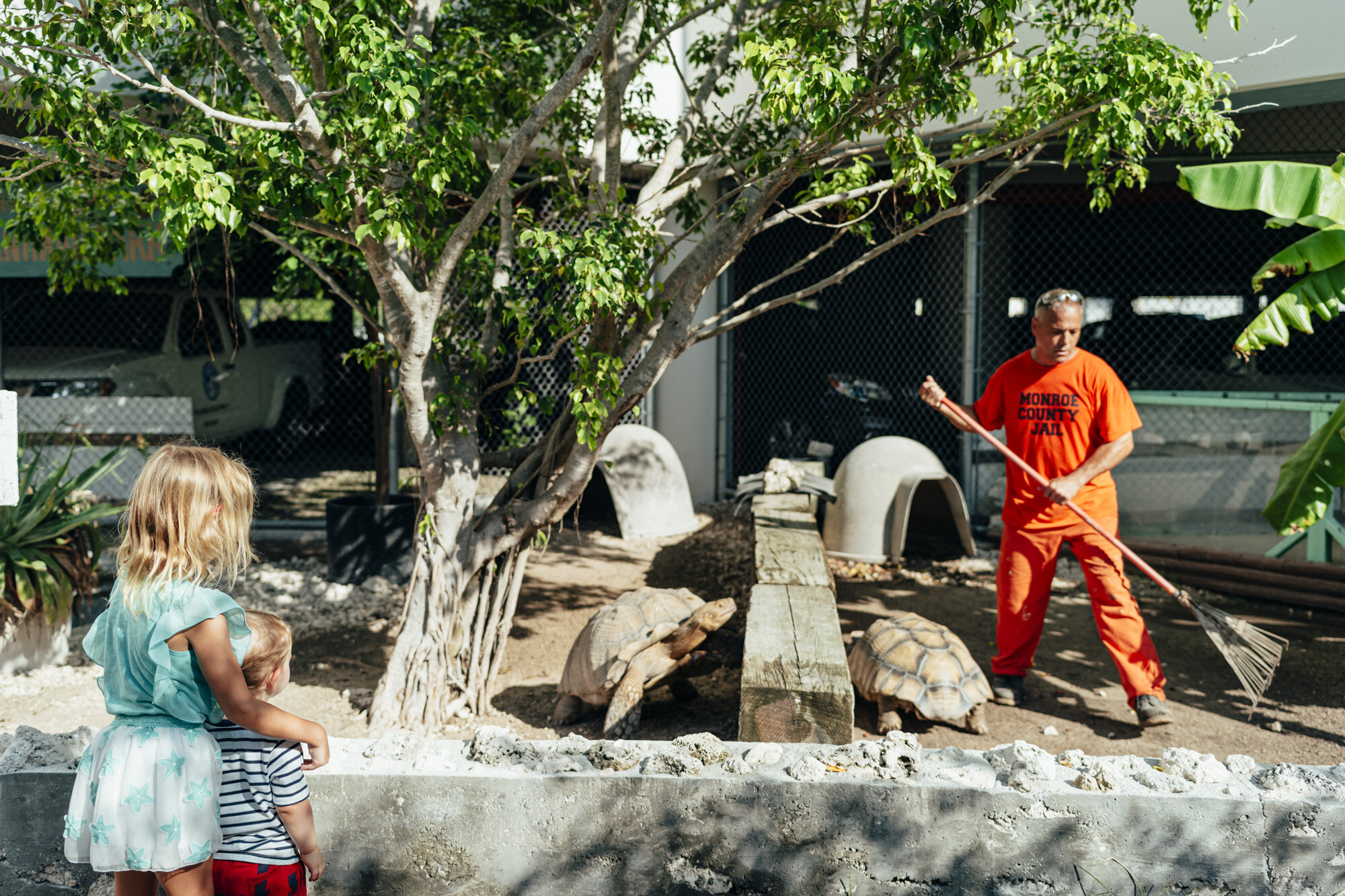
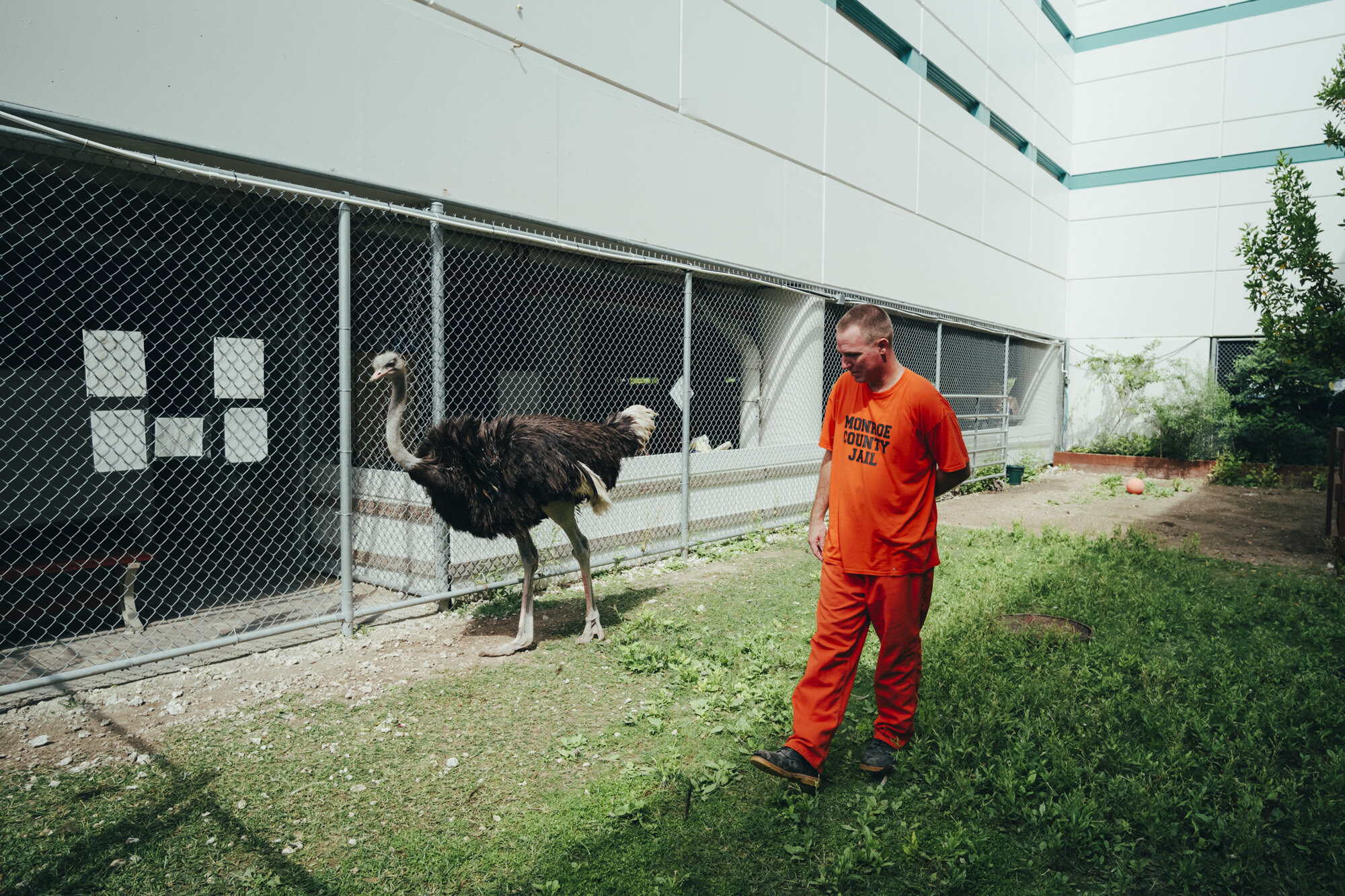
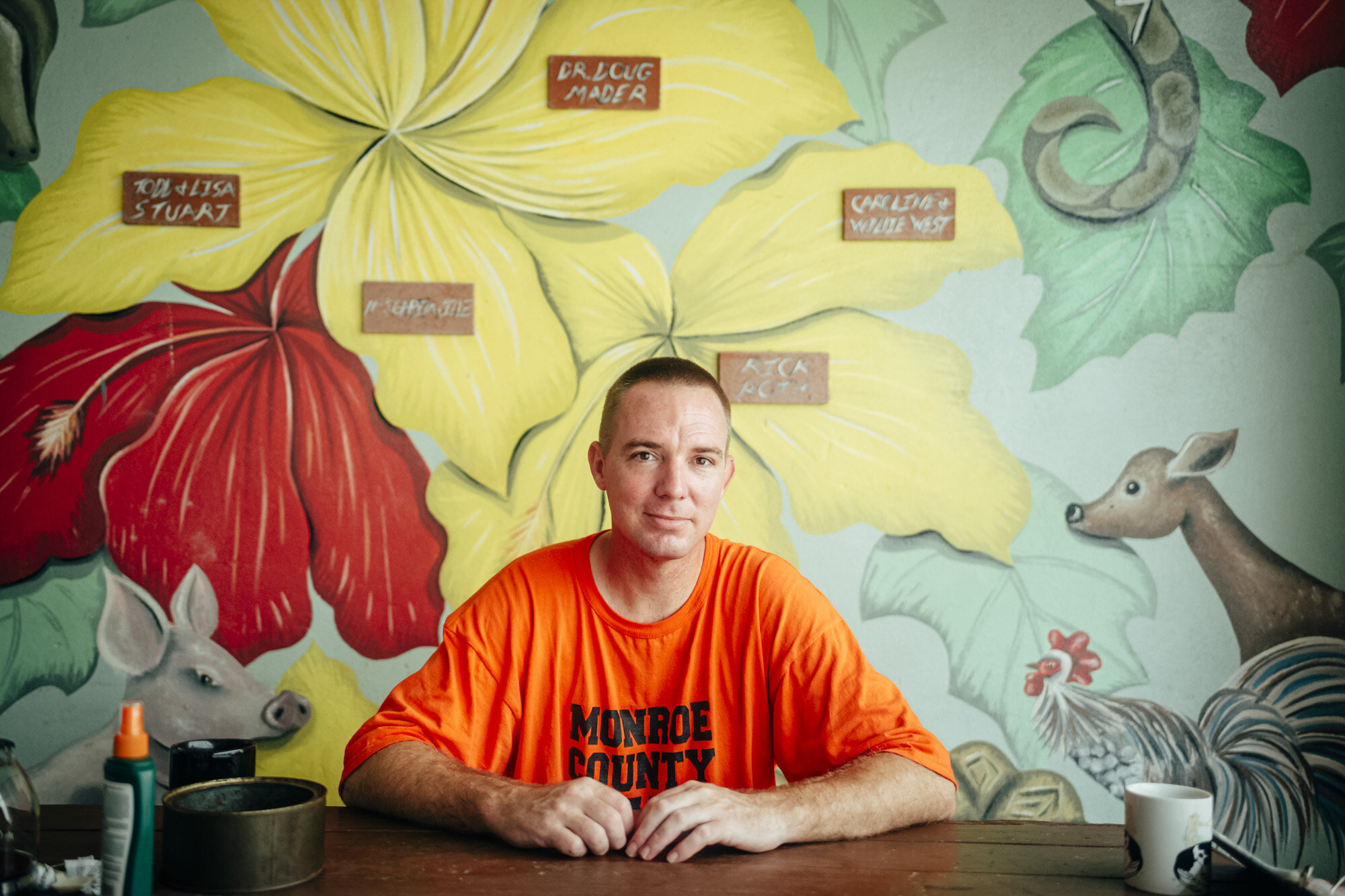
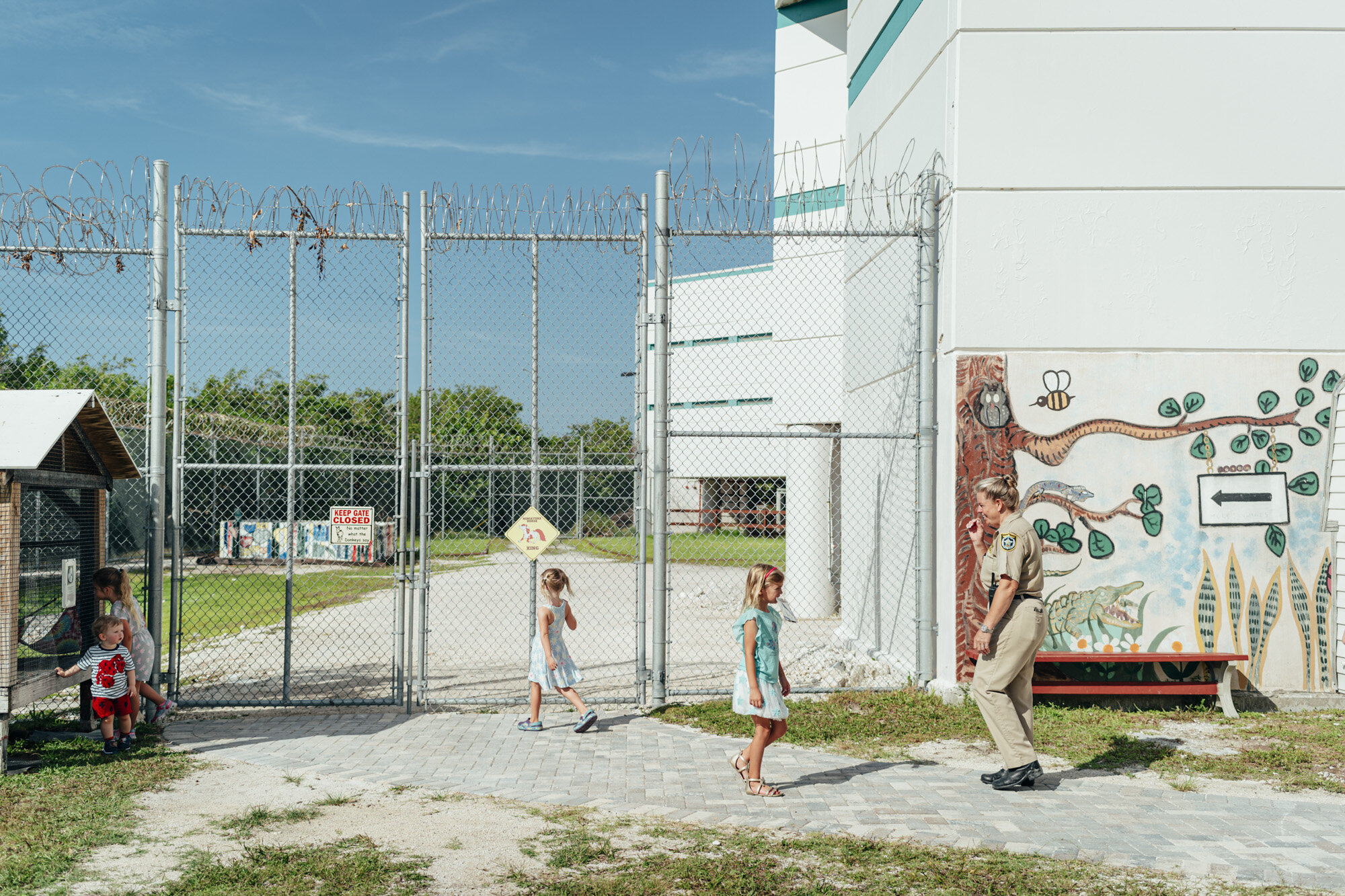
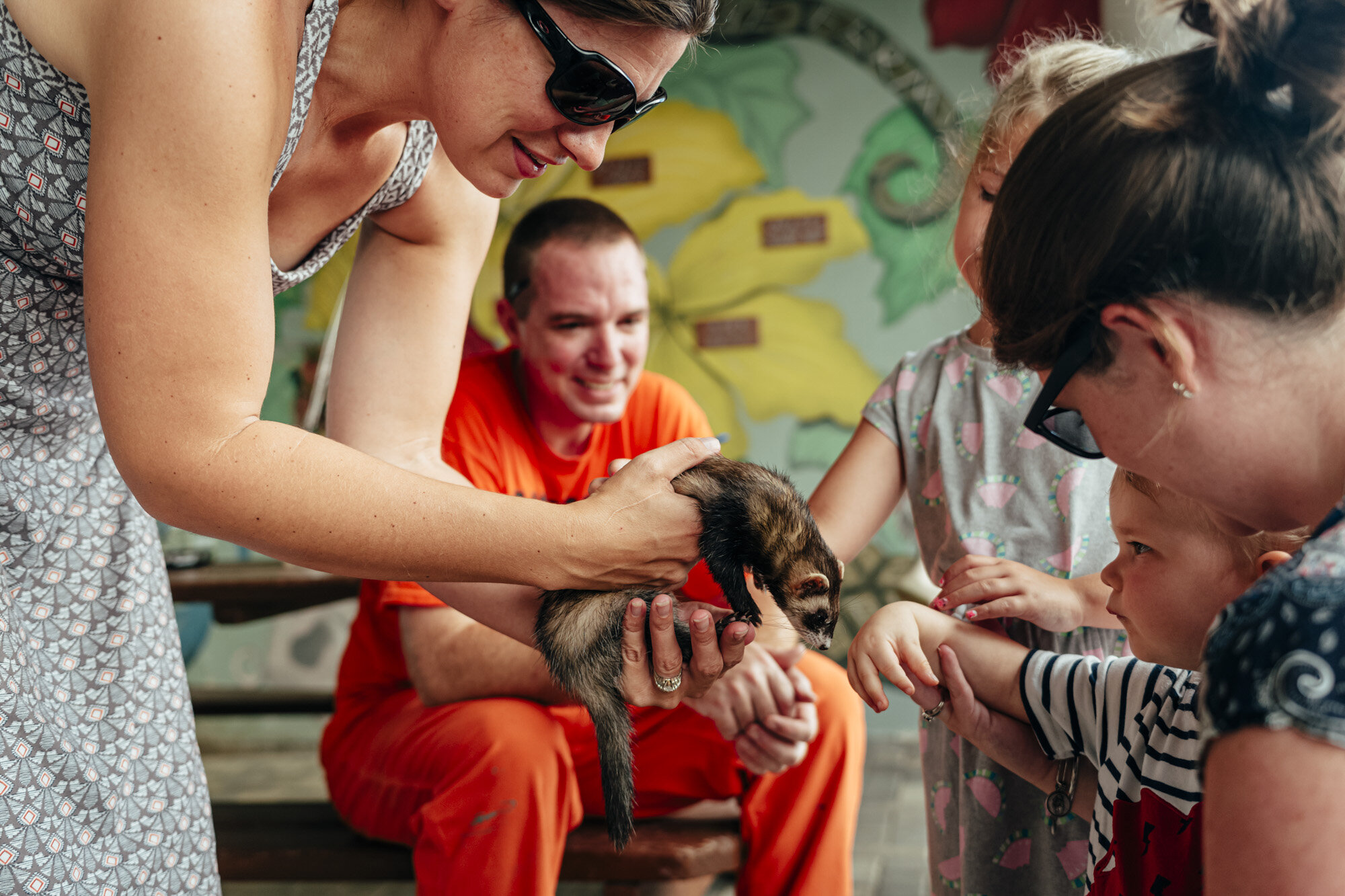
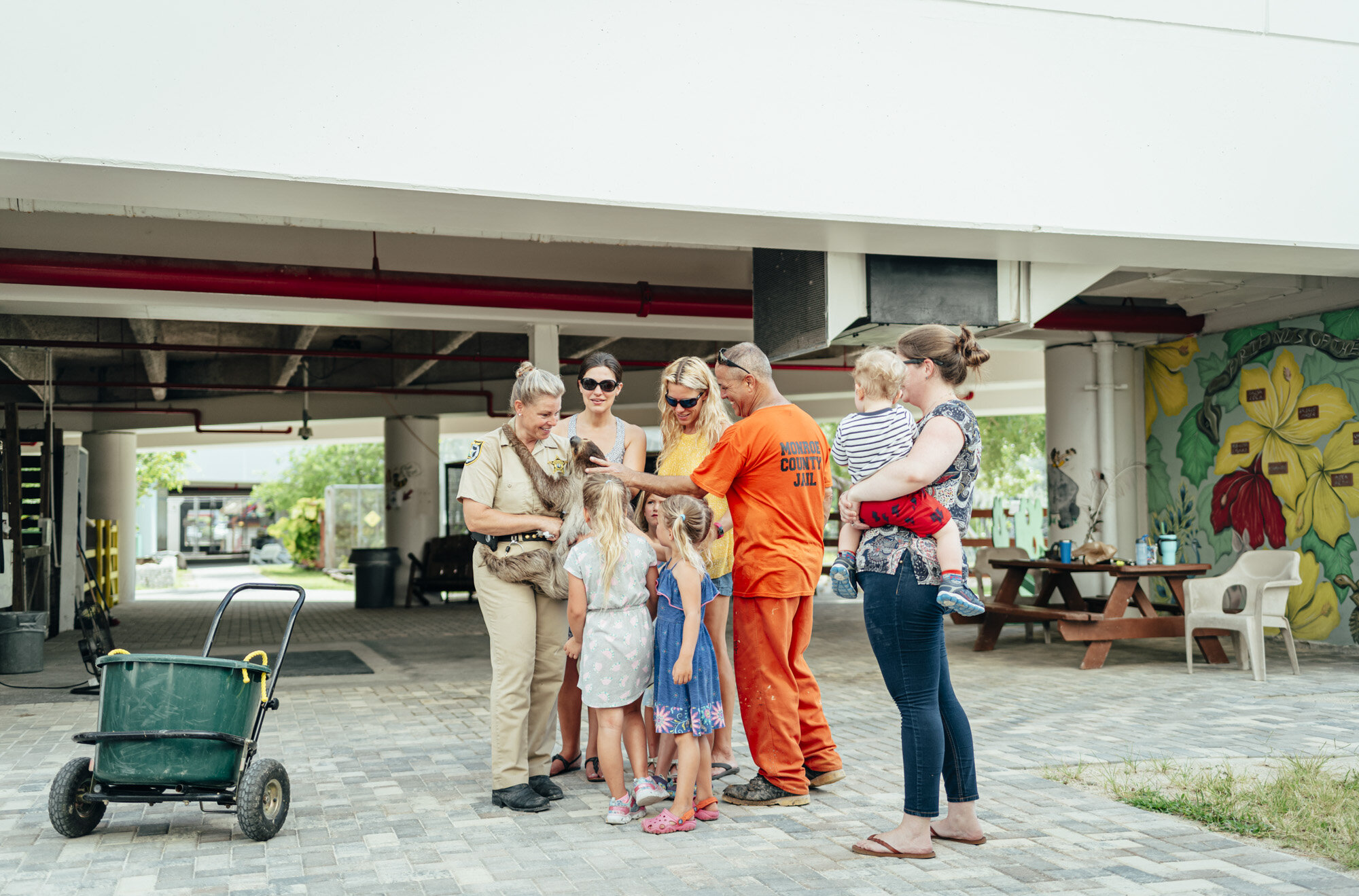
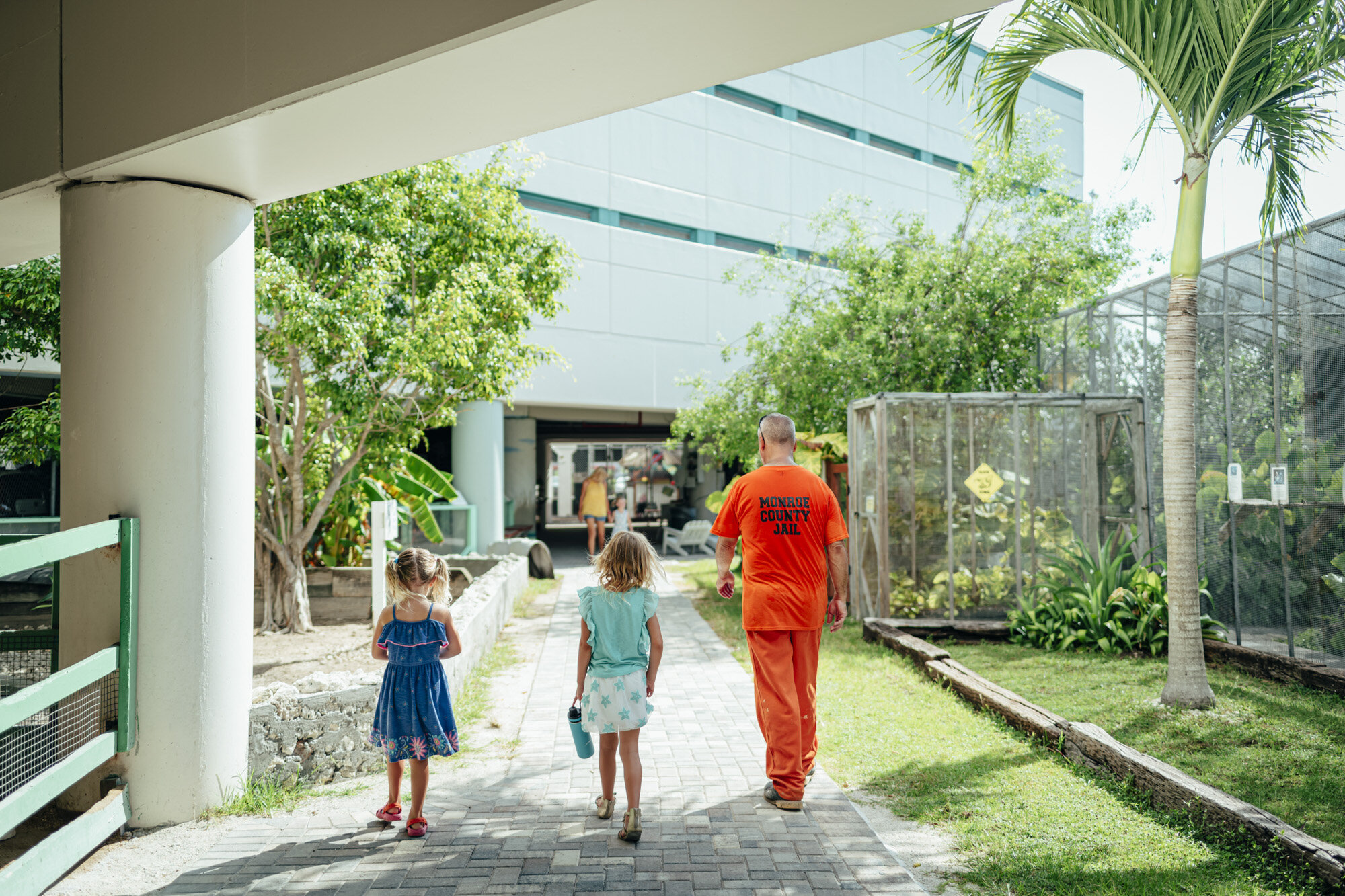
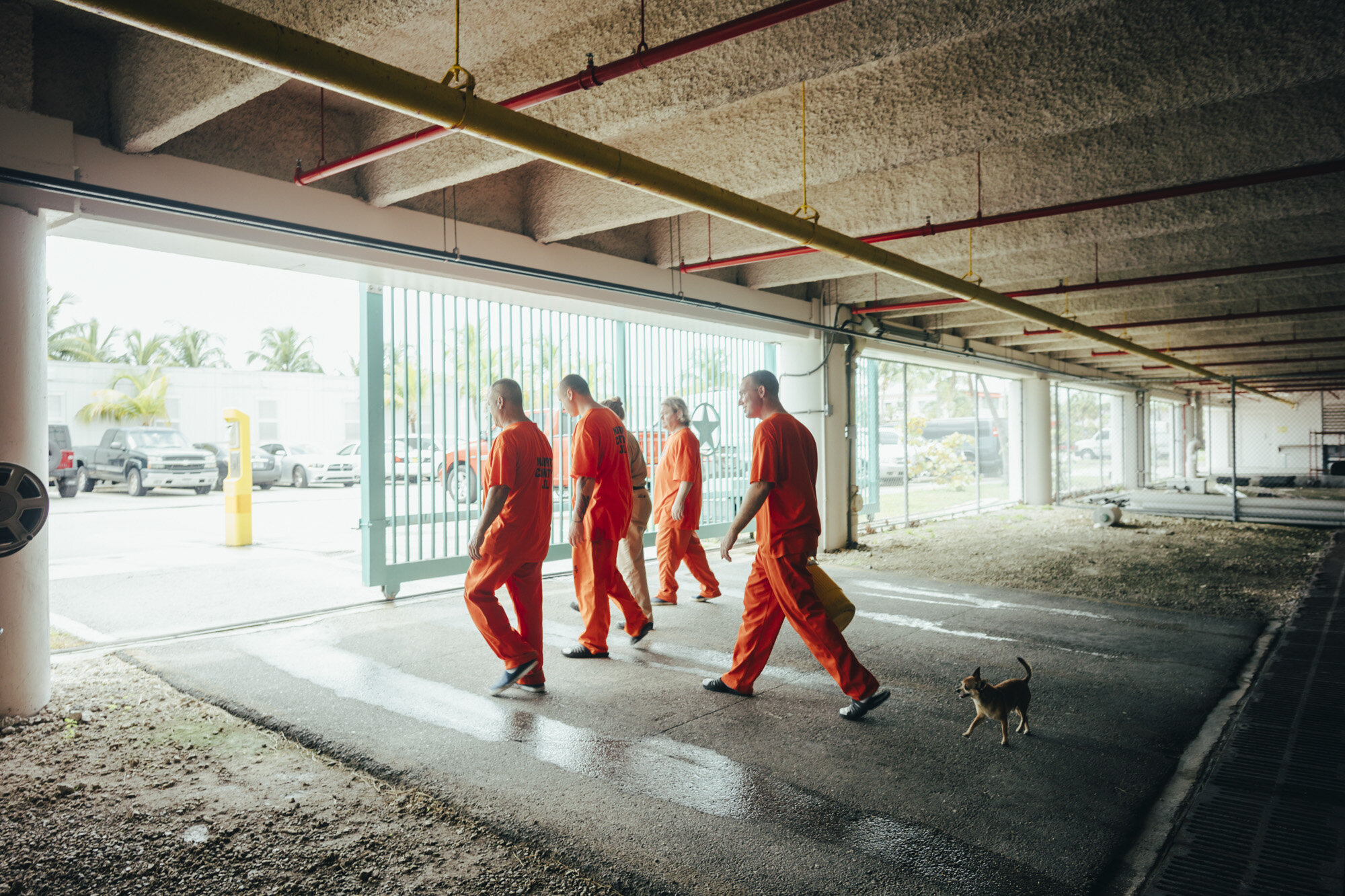
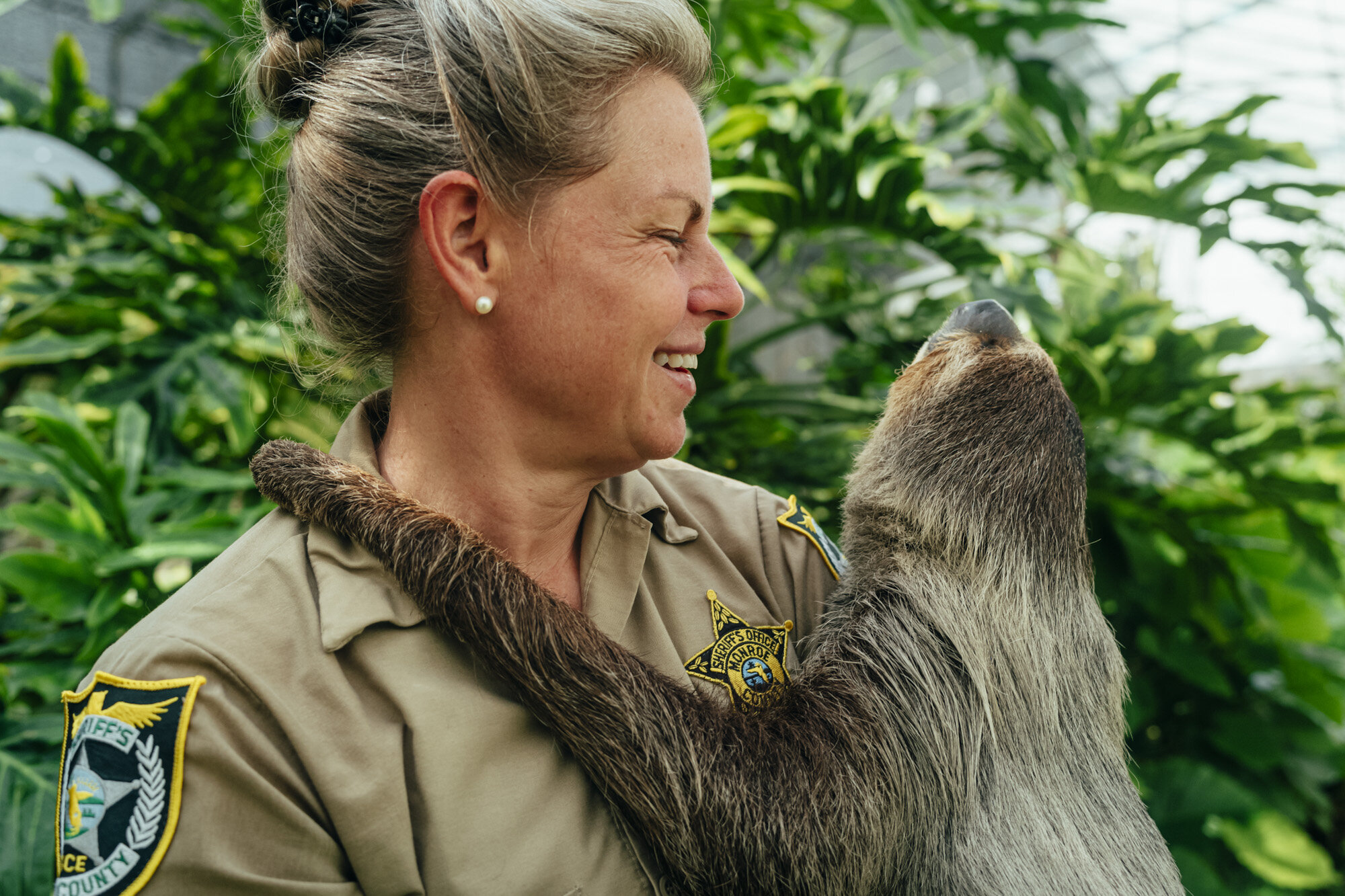
Orange is the New Zoo
Key West, Florida
In the most unique detention centre in the United States, at the end of Key West, strange abandoned prisoners named alpacas, ostriches, ponies, lemurs are cared for and guarded by... inmates. The story begins in 1994.On the busy road along the prison, a merry band of ducks lived dangerously. The sheriff of the time, who became fond of the palmipeds, decided to relocate them in the parking lot under the prison. When the case came to light, more and more people started putting animals in it."We called it the coconut telegraph," says Jeanne Selander, the new Sheriff of Monroe County, a graduate in marine biology and with extensive animal experience.She confesses that she had never worked in a jail before this new kind of experience. Jeanne had a vision to make this place something special. And ten years ago the sheriff gave her the management when the zoo was about to close.
Today the zoo has 150 animals, including a lazy man, a lemur, exotic snakes and lizards, kinkajous, rabbits, ducks, geese, pigs, miniature horses, birds, etc..,And above all, behind all this, a dynamic programme of reintegration through work aimed at empowering prisoners by caring for animals.The zoo therefore works daily with a staff of four or five inmates under Jeanne's supervision.
Violent offenders, or offenders who have abused children or animals, are not eligible for this job," says Jeanne. The zoo operates mainly thanks to donations from visitors and patrons who support this program.One weekend a month the prison opens its doors. Visitors are then in contact with the detainees.Some Sundays up to 300 people can hurry into the alleys of the small zoo to see the animals.
The attendance rate has increased by a factor of 30 over the past 10 years. When Jeanne is asked about the program she has put in place, she confides:
"Working with animals clearly has a positive effect on prisoners.
It's very good for them. Instead of staying in their cells, they are actually doing something that gives meaning and purpose. And I guarantee you, when they get out, they will bring their families back to show them what they have done here.”
More stories by Cyril Abad

